|
As recent events make clear, our world has been irreversibly changed. Adequately responding to the changes already baked into the climate --- and learning how to thrive in this new world while avoiding the worst case scenarios still on the horizon --- will require nothing less than the revolutionary overthrow of the very system that created these problems. Photo: Aliraza Khatr/Getty In 2017, journalist and science writer David Wallace-Wells published a widely-read and hotly-debated article in New York Magazine titled “The Uninhabitable Earth.” The article, which laid out in morbid detail the near-future effects of global climate change on human habitation, drew both criticism and praise from climate activists. For many, Wallace-Wells’ depiction of a worst case scenario — which included section heads with such titles as “Heat Death,” “The End of Food,” and “Perpetual Collapse” — was so relentlessly apocalyptic as to crush any hope that the most terrible effects of the climate crisis could somehow be avoided. This, some claimed, would discourage the kind of mass organizing necessary to confront the problem. Others, however, praised the article for exactly these reasons, arguing that the only way to move people to take action is to make clear the mortal threat of climate change. While the question of the psychological effects of such apocalyptic visions of environmental collapse remains unanswered, one thing is becoming increasingly clear: we are already living in the time of climate catastrophe, and capitalism is to blame. Thanks to a total lack of action by corporations and bourgeois governments across the planet, several of the scenarios depicted by Wallace-Wells are already unfolding, with terrifying consequences. Take, for example, the previously unimaginable prospect of heat death. According to the National Oceanic and Atmospheric Association (NOAA), 2020 was not only the hottest year on record, but the six previous hottest years all took place since 2014. And while this steady rise in temperature may be hardly noticeable on a global scale, it can lead to catastrophic local events. In June, for the first time ever, wet bulb temperatures above 35 degrees Celsius — that is, the temperature and humidity at which humans can no longer naturally cool themselves — were recorded in the Persian Gulf and parts of Pakistan. Such temperatures, if sustained, would mean almost certain death for anyone unlucky enough to be caught outside for more than a few hours, even sitting in the shade with plenty of water. That such previously unheard of temperatures are already being recorded, even as corporations and states continue to emit tens of billions of tons of carbon into the atmosphere each year, means that many of these areas could become all but uninhabitable within a matter of decades, or even years. Meanwhile, just last week, freak weather patterns brought scorching, record-breaking heat to the Pacific Northwest. Temperatures in the Canadian province of British Columbia topped 121 degrees Fahrenheit, melting roads, destroying electrical infrastructure, and killing hundreds. As many as 700 people in British Columbia, and at least 130 more from Washington and Oregon, died as a result of complications from the extreme heat. While this particular heat wave is being described as a once in a millennium event, research shows definitively that such incidents are becoming increasingly common. Extreme heat events like these have increased threefold since the middle of the 20th century, reaching average temperatures 3-5 degrees Fahrenheit higher than previous heatwaves. Further, heat dome effects like the one that scorched British Columbia have also become more common since the 1990s as a result of changing jet stream patterns. Scientists are still debating whether or not these changes in the jet stream are the product of climate change. Other potentially catastrophic phenomena, such as the shrinking of Arctic sea ice, are already happening, and at an accelerated pace. Last year, researchers at the University of Leeds, reported that Arctic sea ice melt was happening at a rate six times faster than in the 1990s. Since the 1980s, the Arctic — which is warming much faster than the rest of the planet — has seen a massive decrease in the amount of summer ice. This June, temperatures there reached an astounding 118 degrees Fahrenheit, and NASA has reported that the 2020 summer ice minimum was the second lowest on record, only slightly more than the record-breaking 2012 minimum, which scientists estimate was the highest melt rate in the last 4,000 years. Because ice and snow reflect a far greater portion of sunlight than open water, this melting has created a feedback loop, in which dark open waters absorb more heat, creating even more open water, which in turn absorbs more heat and melts more ice. At this rate, scientists estimate that we could see ice-free summers in the Arctic as soon as 2035, far sooner than previous predictions. This melting has been so severe that it has already opened new shipping routes and access to natural resources, which are leading to increased tensions between the United States, China, and Russia over control of the region. Such tensions point to the potential for a period of expanding climate-driven military conflict, as rising temperatures continue to reshape the geography of the planet. Unfortunately, these kinds of feedback loops are not only threatening the Arctic. A leaked draft report from the normally sanguine United Nations Intergovernmental Panel on Climate Change (IPCC) argues that there is little time left to avoid further catastrophic tipping points. These include the melting of the polar ice caps and wholesale transformation of the Amazon forest into open savanna. The most important aspect of this report, however, is its blunt assessment that many scenarios and impacts can no longer be avoided and that world governments are currently ill-prepared to deal with the inevitable changes already taking place. From infrastructure collapse to famine, mass migration, and flooding of coastal cities and island nations, the looming effects of climate change that are already baked into the system are going to be an enormous challenge, one that will require planned cooperation on a global level that capitalism, built on competition, has proven incapable of achieving. As the heatwave in the Northwest and the recent electrical grid failure in Texas demonstrate, even wealthy countries such as Canada and the United States are ill-equipped to deal with the infrastructure challenges posed by climate change. Images coming out of Oregon and Washington of buckling asphalt and melting electrical wires show the vulnerability of aging infrastructures and the way that such climate events can potentially lead to a cascading series of catastrophes, as heat waves and hurricanes give way to blackouts, forest fires, and flooded cities and subway systems. At the same time, historically dry regions, such as large portions of Australia, and the American Southwest, are already seeing unprecedented historic droughts and wildfires that have overwhelmed emergency services. In Australia alone, more than 46 million acres of land were burned during the 2019-2020 fire season, wiping out entire ecosystems. And things are even worse in the developing world, where increased heat and changing rainfall patterns are causing, among other disasters, longer droughts and more famines. In Madagascar alone, over 400,000 people are facing starvation thanks to a climate-induced drought that has turned many former farmlands into dust bowls. While such events are bad enough in themselves, the long-term consequences, if left unaddressed, will be even more devastating, as catastrophe piles upon catastrophe. Increased military conflict, pandemics, mass emigration, and economic collapse are already happening but are sure to get worse if nothing is done to both stop the causes and mitigate the effects of climate change. And capitalism has shown that it is profoundly incapable of doing either. Indeed, fossil capitalism, founded as it was on the presumption of an endless availability of cheap energy, and grounded in the necessity of limitless growth and near-sighted profit-seeking, has only made these problems worse and it is the height of insanity to think that the same system responsible for creating climate change can somehow stop it. The recent infrastructure debate and the Biden administration’s lack of any meaningful climate plan, the failure of the Paris Summit, and the increasing levels of global carbon emissions all show that bourgeois governments are not only often unwilling, but actually incapable of taking the kinds of drastic actions needed now to stop further climate change. At the same time, the global response to the Covid-19 pandemic, immigration, and economic crisis also shows that global capitalism is woefully unprepared to deal with the consequences of the climate catastrophes already happening everywhere. Stopping further global warming, ending runaway climate change, and adapting to the new normal of a world that will almost certainly soon be at least 2 degrees Celsius warmer than before the industrial revolution will require the kinds of cooperative economic planning and mobilizations only possible in a society run by and for the interests of working people instead of profit. This means a global socialist society that prioritizes need over growth and cooperation over competition. Building a revolutionary struggle to win such a world must be our priority if we hope to salvage what is left of our environment. But any such struggle must also necessarily involve organizing around a series of demands to protect the lives and wellness of working people and to stop climate change now before it gets worse. These must include the immediate nationalization of all transportation manufacturing, fossil fuel extraction, and energy production under the control of workers and communities of working people, a commitment to the cessation of the use of all fossil fuels within the next decade, and mass public investment in carbon capture technologies. It must also include demands for open borders to accommodate climate refugees, debt cancellation for all dependent and semi-colonial countries, and mass public investment in new energy infrastructure, public transportation, and forest, ocean, and wetland conservation. This is the only way we can rationally transition away from an economy built on growth, consumerism, destructive methods of production, and the use of heat-trapping fossil fuels. AuthorJames Dennis Hoff is a writer, educator, labor activist, and member of the Left Voice editorial board. He teaches at The City University of New York. This article was republished from Left Voice. Archives July 2021
2 Comments
In the days after the murder of George Floyd at the hands of a police officer in the United States, massive revolts spawned in that country and have travelled fast around the world, getting the center of international attention and gaining massive support. Among those who comment on these events, there has been much (and certainly, there has to be) insistence on the fact Floyd’s murder is not merely an isolated act of racist hatred: it is recognized that racist violence is a systemic or structural issue[1]. Nonetheless, it is very important to clarify what that means. What is that system in which racial violence is framed (inside and outside of the United States)? If this is not explained, pointing out the structurality of racist violence remains at a level of generality in which, without being less true, it ends up being something banal. Of course, I do not pretend to provide an exhaustive analysis or a definitive answer here. I would like to insist, however, that it is crucial for this explanation to understand that, like all phenomena in our society, racism is a historical phenomenon, and a specifically modern one[2]. It is a mistake to believe that it has been present exactly as we know it in all societies; yes, there has always been a difference between one’s own group and foreigners, along with a hierarchy of value between “them” (barbarians) and “us” (civilized), which can include differences based on physical or phenotypic traits. However, racism, the idea that there is a natural fatality, race, that is much more deeply rooted in the being of individuals than any archaic caste, and that innately entails a state of moral, cultural and intellectual inferiority and a servile condition, is a legacy of modern colonialism and the system of slavery that it inaugurates[3]. One must also understand that, contrary to what many liberal advocates of Western civilization maintain, slavery was not some “pre-modern” heritage. Slavery in Europe had been abolished in the 13th century, and in the Islamic world even earlier. Slavery will resurface in the middle of the 16th century, when it is already crystal clear for the whole of society that it is something aberrant, and in a much more degrading way than in any other time in history (a slave in the Middle Ages or in the Ancient World did not inherit his condition by the color of her skin, and she had a much better chance of buying her freedom for herself or her family, and even of moving up socially), because of the interests of the new merchant class that was then beginning to emerge (that is: due to the economic need of cheap labor)[4]. Racism does not precedes slavery: racism emerges after decades of forced servitude, subject to the need for profit of the new capitalist class, to its need to appropriate land and human beings to generate wealth without cost overruns. It is the quasi-natural justification of the situation of oppression inherent to a system of expropriation and exploitation. The history of modern racism and colonialism goes hand in hand with the history of capitalism: they are the same history. That is why it is a mistake to think that capitalism is merely “an economic system”. Capitalism is, above all, a system of domination based on expropriation and exploitation. And that is also why, although it is correct to celebrate the awareness of the masses who, exercising their legitimate right to disobedience, unleash their indignation and furious protest[5], we must not remain complacent in the pure celebration of revolt (which without organization and a clear strategic route, always ends up fading away). Eliminating racist structural violence, overcoming the oppression of peoples of colonial origin and exploited labor throughout the world, requires thinking about a radical reorganization of the economic and political system that we call capitalism (to think, without fear, in its opposite). We must think and speak without fear of socialism, and think and speak without fear about how we must organize to overthrow the social class that to this day benefits from the most savage injustice. Regarding this reflection, I believe that Marxism (with 180 years of theoretical and practical experience in Europe, Africa, Asia and the Americas) has much to contribute. Citations [1] In the case of the United States, this becomes evident to those who contemplate the figures and the systematicity with which the Afro-descendant population suffers this kind of violence by the punitive institutions of the state. In the case of Peru (my country), a similar argument could be made in relation to the mestizo and indigenous population. [2] See Allen, T., The Invention of the White Race (2012). Also, I. Wallerstein and A. Quijano, “América como concepto o América en el moderno sistema mundo”, in Revista Internacional de Ciencias Sociales vol. XLIV n°4, 1992. [3] See Losurdo, D., Class Struggle: A Political and Philosophical History (2015). [4] Indeed, it is interesting to see how European society, in the centuries before the restoration of the slave trade, had already generated institutions and normative resources to question the practice of slavery (the antislavery position of the theorist of absolute monarchy Jean Bodin can be contrasted with that of the “father of liberalism”, John Locke, whose defense of private property included a defense of slave ownership in the colonies). The Catholic Church and the monarchical state, despite all of their despotism, often played a positive role in this regard. It was against the “illegitimate” interference of these “illiberal”, pre-modern powers in regard to the administration of their possessions that liberalism as a doctrine would be born. See D. Losurdo, Liberalism: A Counter-History (2005), and for a more general history of “primitive accumulation”, see the first volume of Marx’s Capital. [5] See Celikates, R., “Rethinking Civil Disobedience as a Practice of Contestation – Beyond the Liberal Paradigm”, in Constellations Volume 23, n°I (2016). About the Author: Sebastián León is a philosophy teacher at the Pontifical Catholic University of Peru, where he received his MA in philosophy (2018). His main subject of interest is the history of modernity, understood as a series of cultural, economic, institutional and subjective processes, in which the impetus for emancipation and rational social organization are imbricated with new and sophisticated forms of power and social control. He is a socialist militant, and has collaborated with lectures and workshops for different grassroots organizations. Originally published in Disonancia: Portal de Debate y Crítica Social (Jun 4, 2020)
"I would annex the planets if I could; I often think of that." - Cecil Rhodes Venture capitalism is about to find itself in a new arena – space. Its existence has already started as SpaceX has begun to launch its first rockets into space. Jeff Bezos said “The only way that I can see to deploy this much financial resource is by converting my Amazon winnings into space travel. That is basically it.”[i] The rich want to get to space, and capitalists are extremely good at innovation. The development of space is inevitable and important, but the critical question is by whom. The primary avenue for wealth creation in space will be mining. The vast number of material resources available on the nearest celestial bodies[ii], combined with the potential for strip mining, means that the first few corporations to mine in space will be wildly successful. Goldman Sachs claims that the first trillionaire will make their fortune in space[iii]. After purchasing competing rocket programs to create an oligopoly on access to space itself, these companies would quickly dwarf today’s Earthbound mega-corporations. Once these corporations are off earth and recruit a space-based working-class, to which government will they answer? What would stop these corporate settlements from arming their borders, proclaiming themselves free from governance, and lobbying Earth politicians into the ground with their newfound billions? Current governments are running a deficit pay for healthcare; the notion that they could finance a fleet of rockets to enforce bureaucratic regulations in space is a fantasy. If these space-mining initiatives are powered by economic democracy, humans could have access to all the materials they require. The trove of metals and minerals would be at the behest of society as a whole, eliminating the politics of scarcity. Without such scarcity, an entire upper bound for human advancement and consumerism could disappear. Under the influence of capitalism, however, the process would be much different. The space-faring miners could flood the market and bankrupt miners on Earth repeatedly. Then, they would leverage another monopoly and most likely follow in the diamond industry’s footsteps – choking out supply to keep prices and revenue high[iv]. Space settlements would exist, but their leaders would not hold power democratically. These space settlements’ only purpose would be to generate more wealth and luxury. The existence of a ruling luxury class looking to build private kingdoms is one thing, but a more insidious issue would present itself. Everything involved with the settlement – including housing, utilities, food, and return tickets to earth– would be owned and controlled by the corporation. The company would set both the workers’ wages and the cost to leave the space settlement. It might not happen immediately, but the conditions are almost inevitably going to drift towards an exit ticket being too expensive to afford. A captive workforce with no option but to accept its wages is irresistible to any wealthy capitalist. Indentured servitude has and always will be attractive to a company’s bottom line. There’s one other problem involved with the rich and powerful holding humanity hostage in space. A society based on wealth accumulation only seeks to become more and more extravagant. The drive to explore, create, learn, and discover falls by the wayside — bottlenecked and strangled by the desire for extreme luxury. Only a society based on economic democracy will allow humanity to choose exploration and science for its own sake because sometimes, discovery doesn’t find itself in the name of wealth. Citations [i] Döpfner, M. (2018, April 28). Jeff Bezos reveals what it's like to build an empire and become the richest man in the world - and why he's willing to spend $1 billion a year to fund the most important mission of his life. Retrieved November 05, 2020, from https://www.businessinsider.com/jeff-bezos-interview-axel-springer-ceo-amazon-trump-blue-origin-family-regulation-washington-post-2018-4 [ii] Bonsor, K. (2020, June 22). How Asteroid Mining Will Work. Retrieved November 05, 2020, from https://science.howstuffworks.com/asteroid-mining.htm [iii] Business, R. T. (2018, April 22). Space mining will produce world's first trillionaire. Retrieved November 05, 2020, from https://www.rt.com/business/424800-first-trillionaire-space-miner/ [iv] Nace, T. (2018, May 30). De Beers Gives In And Begins Selling Lab Made Diamonds. Retrieved November 05, 2020, from https://www.forbes.com/sites/trevornace/2018/05/30/de-beers-gives-in-and begins-selling-lab-made-diamonds/?sh=5d5a25694636 About the Author:
Casper Rove is a blue collar worker from Omaha, Nebraska who coaches highschool debate part-time. His free time is best spent making headway in his endeavor for sustainable subsistence farming and looking for the most pragmatic way to convert socialist thought into socialist infrastructure. Naomi Klein’s 2007 book The Shock Doctrine: The Rise of Disaster Capitalism details a long history of the United States using times of disaster as an opportunity to push for neoliberal policies. Klein begins her book using Hurricane Katrina as an example. In the aftermath of Katrina, famed free market economist Milton Friedman wrote an op-ed for the Wall Street Journal. Freidman said “Most New Orleans schools are in Ruin… This is a tragedy. It is also an opportunity to radically reform the Education system.”[1] By radically reforming the education system, Freidman of course meant transitioning from Government funded public schools, to privately managed charter schools. Freidman saw that New Orlean’s education system had been completely decimated by the hurricane, and would need to be rebuilt. Friedman urged New Orleans to seize the opportunity and rebuild their school system from scratch with a focus on privately operated schools. The Bush administration heeded Friedman’s advice, and began dumping millions of dollars into the creation of new charter schools in New Orleans. In a matter of 19 months, the school board went from managing 123 Public Schools to 4, the number of Charter schools increased from 7 to 31, and the teacher’s union contract was shredded, leading to forty-seven hundred teachers being fired.[2] The free market advocates had successfully used the chaos created in the wake of a natural disaster to implement neoliberal policies, while framing these policies as the solution to the problems many New Orleans residents were facing. This playbook is what Naomi Klein calls “The Shock Doctrine.” Using chaos in the wake of natural or political disaster as an opportunity to push for neoliberal free market policy. The Covid-19 Pandemic provides another clear example of the shock doctrine, and what Naomi Klein calls in her book “disaster capitalism.” An area of heavy focus in Klein’s book, is the 1973 coup in Chile. The CIA famously allied with Agusto Pinochet’s military government, who overthrew and killed socialist leader Salvador Allende.[3] Pinochet’s government was notoriously brutal. Upon taking power Pinochet ordered the massacre of approximately 20,000 people suspected of being communists. The political murders took place in the Estadio Nacional Julio Martinez Pradones, which is Chile’s official national fútbol stadium. Pinochet’s rapid seize of power, and following acts of political violence, left the Chilean people in a place of fear and chaos. It was at this time, the aforementioned Milton Freidman became chief economic advisor to Agusto Pinochet. In addition, many Freidman trained economists from the Chicago School became advisors to Pinochet. Chile would then be subjected to a series of free market neoliberal economic reforms. All government spending besides military was cut 10%, price controls were lifted, and unlimited foreign imports were now allowed. Additionally, leftists and union activists were hunted and killed by the Pinochet military dictatorship.[4] These policies had a disastrous effect on average Chilean workers. Unemployment hit as high as 30%, while simultaneously corporate profits soared.[5] Katrina shows how the shock doctrine is applied domestically, while Chile provides an example of how the Shock Doctrine playbook is used as a tool of imperialism. Currently the US is using the Covid-19 pandemic as a chance to destabilize Venezuela, as they did Chile years ago. Prior to Pinochet taking power, the US had placed Chile under economic embargo, blocking them from trading with most the world. This same strategy has been used on Venezuela for years, however it has been ramped up to new heights as of late. Venezuela now has 150 economic sanctions placed on their country by the United States.[6] The US has blatantly ramped up sanctions on Venezuela, during a time when the Latin American country is attempting to fight against the Covid-19 pandemic. As the UN and EU call for the US to alleviate sanctions during the pandemic, the Trump administration has instead created new sanctions. Including sanctions imposed on March 12, cracking down on a Russian firm, which was helping to sell Venezuelan oil. Venezuelan expert Jeffery Sachs says “sanctions have weakened both countries’ (Iran and Venezuela) health infrastructure by curtailing access to foreign exchange and the capacity to import key medical inputs”[7] The increase in sanctions follow the shock doctrine playbook closely. The US is attempting to use the Global Pandemic as a tool to achieve the regime change they desperately want. After blocking Venezuela from importing medical supplies, the US can turn and President Maduro, and the Venezuelan Government for people’s suffering. The US backed Venezuelan opposition party, will no doubt parrot this anti Government narrative to struggling Venezuelans. Were the US to be successful in overthrowing the Venezuelan Government, Venezuela would no doubt follow the same path as Chile. Juan Guaidó, or another neoliberal puppet from the Venezuelan opposition party, would take power and immediately implement neoliberal reforms. US sanctions would be lifted, and GDP along with corporate profits would skyrocket, while social programs and unions would be destroyed. Free Market advocates would claim victory, and point to Venezuela’s increased GDP as a success story of capitalism, claiming that the country had been saved from the evils of socialism. These Free Market advocates would never mention the US of sanctions used to starve Venezuela out during a pandemic. This is a playbook the free market advocates have been using for years. The US destabilizes a region using sanctions or other measures, then when a US friendly leader is appointed, the sanctions are relieved, and GDP skyrockets. The Free Market economists then claim victory, as the country in question becomes a source of cheap resources and labour for multi-national corporations. Venezuela sits on 300 billion barrels of oil, the largest oil reserves in the world.[8] Now blocked off from trading with the rest of the world, the oil based economy now has an abundance of commodities to sell, but nobody to sell them too. The government is trying desperately to sell the countries’ oil to anyone who will buy it, in order to properly fund the Venezuelan healthcare infrastructure. Now a pandemic is tearing through the country, and the response from the US has been to increase sanctions and destabilize Venezuela further. This is what Naomi Klein calls Disaster Capitalism. In a world that makes sense, the global community would come together during a pandemic. The resources and productive power of all human beings should be used to help every nation fight this deadly pandemic. Instead the imperialists who rule the world see the pandemic as an opportunity. An opportunity to destabilize enemy nations, and implement neoliberal policy reforms. This reveals the true nature of capitalism. A system which incentivizes only greed, and the acquisition of more commodities. It is a system which creates a psychology among the ruling class, where even in a pandemic which effects the whole of humanity, the system remains focused on profit. Capitalists no longer view Venezuela as a country with millions of regular people living their day to day lives. Venezuela is nothing but a metaphorical gold mine to them. A giant pool of oil that can be extracted and sold at a profit. For the ruling class this Pandemic is not a horrible tragedy, but an excellent business opportunity. If the pandemic can be used as a tool to destabilize Venezuela and allow corporations to access those 300 billion barrels of oil, that is exactly what will happen. Greed takes precedent to human life, and natural disasters are no longer tragedies, but tools for destabilization. This is disaster capitalism, and it is the modern state of human civilization. Citations [1] Friedman, Milton. “The Promise of Vouchers.” The Wall Street Journal. Dow Jones & Company, December 5, 2005. https://www.wsj.com/articles/SB113374845791113764. [2] Klein, Naomi. “Introduction.” Essay. In The Shock Doctrine: the Rise of Disaster Capitalism, 5–5. London: Penguin, 2014. [3] “CIA Cover-Up on Chile.” National Security Archive, August 11, 2017. https://nsarchive.gwu.edu/briefing-book/chile/2016-09-09/cia-cover-chile. [4] The Pinochet Myth. Youtube.com, 2018. https://www.youtube.com/watch?v=gIwJCtboXQA&t=87s. [5] Klein, Naomi. “Introduction.” Essay. In The Shock Doctrine: the Rise of Disaster Capitalism, 5–5. London: Penguin, 2014. [6] Service, Congressional Research. “Venezuela: Overview of US Sancitons.” FAS.org, 2020. https://fas.org/sgp/crs/row/IF10715.pdf. [7] D. Sachs and Francisco Rodriguez – Project Syndicate, Jeffery. “A Pandemic Is No Time for US Economic Sanctions.” Venezuelanalysis.com, July 8, 2020. https://venezuelanalysis.com/analysis/14822. [8] “Top Ten Countries with World's Largest Oil Reserves, from Venezuela to Iraq.” NS Energy, April 5, 2019. https://www.nsenergybusiness.com/features/newstop-ten-countries-with-worlds-largest-oil-reserves-5793487/. In the United States, an estimated 16.2 million adults suffer at least one major depressive episode per year.[1] That’s 6.7% of the country who find themselves frequently battling with crippling depression, leaving them under motivated, and trapped in a downward spiral of mental negativity. Even those who don’t have clinically diagnosed depression can relate to these feelings. The tasks of life in our endlessly productive capitalist society can become overwhelming at times, even for the happiest of people. This feeling often leads us to isolate ourselves from the outside world, and fall deeper into the downward spiral of depressive thoughts. There are things that can be done to combat depression of course. Healthy eating, exercise, meditation, consuming positive content, and therapy are all great ways to break out of the depressive thought cycle. However, human beings must also look at the system of production we have created, which is currently leaving so many feeling depressed and hopeless. Under capitalism, many workers find themselves isolated from the things that truly bring them joy. Most people spend eight or more hours a day working dead end jobs. In return for their labour, workers receive wages or salaries which they hope will be enough to support their families. Meanwhile the owners of the companies we work for make enormous sums of money, which they often use to purchase vacation homes, or other luxuries. It then becomes the goal of every employee to achieve the position of company owner, and if not, they must become content with the 9-5 grind. This rat race coerces human beings into becoming cogs in our capitalist system, and as a result, alienates us from the joys of life. The capitalist mode of production creates a culture, which incentivizes the pursuit of hoarding money above all else. Success is measured by your wallet, rather than your overall happiness. For these reasons I believe it is capitalism which is fueling the modern day crises of suicide and depression in America. American society often falls into the mentality of victim blaming. When problems occur, we tend to place the blame on individuals, before we address macro level systemic problems, which may be more difficult to see. Depression is a clear example of this phenomenon. The US is currently facing a suicide epidemic. The year 2018 saw, 48,344 Americans committed suicide, while 1.4 million more attempted to take their own lives.[2] In response, many have jumped to place blame on the individuals who have taken their own lives. The line “Suicide is selfish”, has become a popular among Americans when discussing suicide. It is selfish to take the easy way out, ending your own life, while leaving family and friends behind to mourn your loss. Suicide does not take the pain away, it simply redistributes that pain to loved ones. In a sense, I agree. Nobody should take their own life, and if you’re considering it, you MUST reach out and get help. Taking your own life will leave those who care about you in unimaginable pain. That being said, the line “suicide is selfish” shows how we immediately jump to placing blame on the individual. Instead, we must investigate the societal ills, which no doubt play a factor in the continued rise in cases of suicide and depression. For an example, let’s quickly examine the American military. You would be hard pressed to find any American who argues that US troops are selfish. Regardless of your thoughts on US foreign policy, the troops truly believe they are signing up to sacrifice their own lives for the good of others. These are people with a desire to fight for, and protect those they love. Now consider the fact that 20 US veterans commit suicide every single day.[3] So, are these suicidal service men selfish? Are the troops simply too weak minded to handle the struggles of life? Of course not. No rational human being would argue that military personnel are committing suicide at astounding rates, because they are simply weak minded. Many troops join the military from societal pressures pushing them into service. Whether it be paying for college, promise of a stable income straight out of high school, or the desire to “defend the country”; all three are some of the main reasons why people join the military. High schools all across the country are littered with military recruiters, waiting in the hallways to push impressionable 16 year olds into joining the armed forces. Many kids do join the army, and are eventually deployed overseas, where many see active combat. However, upon returning home, troops are rarely provided the resources they need to cope with the trauma of war. The system which sends our kids to war, does very little to help those same kids cope with the trauma they experience in combat. The system allocates vast amounts of resources for recruitment, and weapons for killing. However, it spends much less on resources to help those brave souls returning from combat. Suicidal veterans are not people who are lazy or weak. They are products of a system which profits of warfare, and leaves those who do the fighting to fend for themselves, upon returning to the country they swore to defend. I bring up military suicides not only to shine a light on such a horrendous issue, but also to portray how mental health and depression are not choices. They’re not things which can be flipped on or off with a switch. They are invisible killers, which infect the mind, and send even the strongest among us spiraling into infinitely negative patterns of thought. I also use the military example to show how things we experience physically, greatly effect what we feel mentally. Although someone may return from war with no outer scars, they may have inner scars, which are much harder to see. In fact, what makes these mental scars so deadly, is that they are often invisible to those who care about us most. While not all of us have seen armed combat, everyone has their struggles. Most anyone can relate to being stuck in a pattern of negative thought. It leaves you feeling overwhelmed, like your spiraling out of control with no way out. Everyone experiences traumas, which we strive to overcome on a daily basis. We silently fight these mental battles, while simultaneously managing to keep up with the demands of everyday life. Most all of us, operating within the capitalist mode of production, experience these feelings. In many of their works, Karl Marx and Frederick Engels analyzed the anxiety and isolation that most workers experience under capitalism. Out of this, they developed their theory of alienation. Marx’s theory of alienation argues that capitalism transforms people’s labour into a power which dominates the activities of their daily lives. Human labour power has created all the material comforts that we enjoy in modern society. Housing, agriculture, education, and entertainment are all produced through human labour. Labour is what extracts raw materials from the earth, and transforms them into commodities for human consumption. This labour is unique to humans, and has allowed us to create massive civilizations, and make incredible technological advancements. However, the capitalist mode of production, while producing a massive amount of commodities, also alienates humans from their own labour. The average person does not view their ability to labour as an incredible gift, which has allowed for the creation of modern civilization. Instead, we are angrily awoken by our alarms each day, before drudging off to work in order to sell our labour to a capitalist, who in return provide us enough money to survive, the “means of subsistence.” Humans are kept from viewing their own labour as the engine which sustains life, and allows for the human species to live in relative comfort. Instead, we simply view our labour as something that must be sold to a capitalist, with the alternative being starvation, or the starvation of one’s family. Human Labour becomes a coercive force, which drains our mental and physical energy on a daily basis. Under the capitalist mode of production, human labour power is not used for the betterment of all society, but is instead, a tool for maximizing the profits of those who own private property. While capitalism allows for commodity production levels to remains high, it turns the working masses into wage slaves, keeping the workers trapped in a metaphorical golden chain; stuck in a society where the majority of people, spend the majority of their time selling labour to a capitalist, creeating a material abundance that the capitalist indulges in greatly. Meanwhile, the worker is thrown the measly scraps of what his labour created. Many modern day economists use Gross Domestic Profit as the primary measurement for economic welfare. The more profit a country makes, the more prosperous that country will be, and as a result, people’s lives will be better. However, this theory does not hold up to scrutiny, and has forced many economists to rethink GDP as a measure of economic success. Since the end of World War 2 the United States has maintained the highest GDP in the world. This includes the past 20 years, where the US has remained the richest country from 2000-2020. Yet, at that same time, suicide rates in the US have increased by 30%.[4] Clearly, the increasing wealth of American society has not correlated to increased happiness. In a world of material abundance, many still feel that life is not worth living. It brings to mind Marx’s quote from his New York Tribune article Population, Crime and Pauperism, where he says: “There must be something rotten in the very core of a social system which increases its wealth without diminishing its misery.”[5] While humans have created vast material abundance, the working masses have remained alienated from their labour, and have seen their wages stagnate for years. Until something is done to create a better life for the working masses of society, issues such as suicide and depression will persist. As with our many military service members battling depression, the working masses of society face material problems, which leads to emotional hopelessness. These issues will not only persist, but increase as the capitalist mode of production marches along. U.S. Workers have seen their wages stagnate for decades.[6] Young Americans entering the job market are seeing very little hope for their future. As automation continues to decrease the number of available manufacturing jobs, the service industry has grown by 5.4%.[7] Young Americans see in their futures, lives confined to working unfulfilling service industry jobs, and receiving measly wages in return. In addition, young Americans who choose to pursue college level education, are now finding themselves trapped under a mountain of student debt. An issue which didn’t exist, at least not at this level, for previous generations. The sense of hopelessness, and increase in suicide, finds its root causes in the capitalist mode of production. The Covid-19 pandemic has no doubt exacerbated the many contradictions of capitalism, which are driving people into depression. While hard data is still hard to come by at the time of writing this article, the CDC has been clear that the number of mental health issues have increased during the pandemic. [8] The economic shutdown has increased economic instability, and quarantine has increased alienation from other humans. This only adds to the hopelessness of those who already see no future for themselves within the current system. So, what is the solution? Those who still believe in the merits of capitalism will tell you that the solution is hoarding. Go to a cheap college, work the entire time, never spend a dime of your money, and one day you will either be able to retire, or you can become a capitalist yourself. Then you may live a life of luxury as one of the few exploiters, rather than remaining among the masses of those who are exploited. However, many young people are beginning to question this model. Some feel that the cost of living is too high to ever allow for them to accrue enough savings for retirement. Others see that becoming a capitalist yourself may decrease your own personal misery, but will then position you as someone who is making money via the exploitation of others who remain miserable. This is why so many young people have begun to question the system itself. Socialism now hovers around 50% favorability among Millennials and Gen Zers.[9] Our generations feel trapped and alienated by the current system. Marxism offers an explanation of why the system feels broken, and socialism gives us a vision for something new. A society where human labour power is used to maximize the freedom and development of all humans, rather than to enrich the select few people who happen to own the factories we toil in. Young people must not be resigned to the system we’ve been born into. Instead we must put our heads down, and put in the hard work it will take to change this system. Shed those feelings of alienation and depression, which have been engrained in you by the modern-day capitalist system. Find renewed motivation in the struggle to create a better world for ourselves, and all those who will be born after us. We must reject the capitalist propaganda which assures us success in life is equivalent to how much wealth one accrues. In the same way religion and sports help people to find joy in fighting for a cause bigger than themselves, we must find joy and purpose in our fight to create a better world, which uses human labour power to maximize the development and happiness of all peoples. Citations
[1] Koskie, Brandi. “Depression: Facts, Statistics, and You.” Healthline. Healthline Media, June 3, 2020. https://www.healthline.com/health/depression/facts-statistics-infographic. [2] “Suicide Statistics.” American Foundation for Suicide Prevention, July 29, 2020. https://afsp.org/suicide-statistics/. [3]“Suicide Among Veterans and Other Americans.” VeteransAffairs.gov, 2014. https://www.mentalhealth.va.gov/docs/2016suicidedatareport.pdf. [4] Winerman, Lea. “By the Numbers: An Alarming Rise in Suicide.” Monitor on Psychology. American Psychological Association, January 2019. https://www.apa.org/monitor/2019/01/numbers. [5] Marx, Karl. “Population, Crime, and Pauperism.” Karl Marx in New-York Tribune 1859. Accessed September 22, 2020. https://www.marxists.org/archive/marx/works/1859/09/16.htm. [6] U.S. Workers have seen the wages necessary to supporting themselves, stagnate for the decades. [7] Lazzari, Zach. “What Are the Causes of Rapid Growth in the Service Industry?” Small Business - Chron.com. Chron.com, January 22, 2019. https://smallbusiness.chron.com/causes-rapid-growth-service-industry-16007.html. [8] Falcon, Russell. “Are Suicides on the Rise during the COVID-19 Pandemic?” KXAN Austin. KXAN Austin, September 3, 2020. https://www.kxan.com/news/coronavirus/are-suicides-on-the-rise-during-the-covid-19-pandemic/. [9] Saad, Lydia. “Socialism as Popular as Capitalism Among Young Adults in U.S.” Gallup.com. Gallup, September 11, 2020. https://news.gallup.com/poll/268766/socialism-popular-capitalism-among-young-adults.aspx. In my last essay, I discussed how capitalist hegemons have used their control over food supply to shape rules of international commerce. I also demonstrated how these policies have led to economic shocks and displacement in developing countries, leading to mass migration in search of economic opportunity. I believe this history is essential to understand the migration that has been a focal point of American and European politics in recent years. In this essay, I will attempt to explore the issue of migration in capitalist development, hoping to provide historical context for our current conceptions and policies around immigration. One of Marx and Engels's favorite examples was that of the Irish. Up until the mid-19th century, Irish society was structured around a system of tenant farming with most of the land owned by English and Anglo-Irish families. This landed gentry introduced the potato to Ireland in the mid-1700s as a subsistence crop for the rural poor; by the 1840s it had become the staple crop of Ireland with much of the population nearly completely dependent on the potato for their diet. Thus, when the potato blight hit in 1845, the Irish were left with little to eat, even though they were still exporting various agricultural commodities to England. During and after the famine, the British aristocracy took the opportunity to push small-landholders off their land.[1] As Marx put it, "If any property it ever was true that it was robbery, it is literally true of the property of the British aristocracy. Robbery of Church property, robbery of commons, fraudulous [sic] transformation accompanied by murder, of feudal and patriarchal property into private property."[2] The result was the death of nearly 1 million Irish and the additional emigration of 1 million more. Thousands of these newly-landless Irish, migrated to English cities seeking any form of economic opportunity.[3] As I pointed out in my last essay, this sudden influx of workers allowed British capitalists to supplement their industrial reserve army with an injection of a subordinate group to perform degraded labor, intensifying competition in the labor market and driving down wages. Stoked by members of the bourgeoisie to divide the working class, anti-Irish sentiment spread rapidly across England, with violent attacks against Irish migrants becoming commonplace. This stance is probably best exemplified by Benjamin Disraeli who wrote in 1836: "[The Irish] hate our order, our civilization, our enterprising industry, our pure religion. This wild, reckless, indolent, uncertain and superstitious race have no sympathy with the English character. Their ideal of human felicity is an alternation of clannish broils and coarse idolatry. Their history describes an unbroken circle of bigotry and blood."[4] These same tropes have often been repeated in different ways and we have seen them reappear in modern American political discourse in recent years. Though billed as a "Land of Immigrants" in the modern liberal lexicon, the actual history of migration in America is much more muddied than this simple platitude indicates. As Aziz Rana put it: "Throughout American history, the tension between capitalism and both democratic self-government and economic independence has largely been resolved by native expropriation and/or racialized economic subordination."[5] From its inception the United States has been an experiment in what Rana and others refer to as "settler colonialism". Despite the proclamations of politicians extolling the American virtues of acceptance and equal opportunity, race and class have structured American societies from the earliest days of the Jamestown colony. During the early colonial period, British officials considered America a depository for their “excess” population, i.e. the poor. To encourage this “rubbish” to migrate to the “New World” the British government created a system of land-grants promising fifty acres to those who made the journey. At first, this helped promote equitable land distribution, but, with the establishment of the “headright system” in 1618, land was allotted based on the number of people whose travel expenses a settler paid for, granting fifty additional acres per head. This incentive, mixed with the large expense of the journey, led to the broad use of indentured servitude, with many of the early settlers coming to America via this arrangement.[6] Importantly, the additional land was given whether the servant survived their indenture or not- leading to extremely exploitative labor conditions. Obviously, this system of allocation led to a vastly unequal distribution of land with much of the best land accruing to the wealthy and politically connected. Eventually, most of the small farmers were squeezed out of the market resulting in a mass amount of landless poor who would become “squatters” in peripheral areas clearing land for subsistence farming. As formal British settlements expanded to these peripheral areas, squatters, who held no formal title to the land they cleared, were again pushed off their land repeating the process. Thus, it is no surprise that several founders, such as Thomas Jefferson, Benjamin Franklin, and John Adams, saw western expansion as a necessary safety valve for excess population. This became a major point of contention between the colonists and the British following the acquisition of French territory in North America after the Seven Years’ War.[7] After signing the Treaty of Paris, the British government issued the Royal Proclamation of 1763, forbidding all settlement in territory west of the Appalachian Mountains and designating this area as an “Indian Reserve”.[8] Not only did this limit western expansion, but many also feared having native civilizations so near British settlements. This is reflected in the Declaration of Independence where Jefferson accused England of having “endeavoured [sic] to bring on the Inhabitants of our Frontiers, the merciless Indian Savages, whose known Rule of Warfare, is an undistinguished Destruction of all Ages, Sexes, and Conditions.”[9] This statement is indicative of how the American project was conceived. From the earliest days of colonization American leaders have sought to manipulate the demographics of the growing nation, shaping who would be allotted full citizenship and who would not. With the addition of vast new western territories, via the Northwest Ordinance and the Louisiana Purchase, and the expansion of American industry, the young nation required new sources of immigrant labor to fuel western expansion and development. Thus, many early American capitalists supported broadly open immigration policies, with 33 million immigrants entering the U.S. between 1820 and 1920. Indeed, during much of the 19th century American industry was dependent on foreign labor with first- and second-generation immigrants constituting 57 percent of manufacturing[10] and 64 percent of mining laborers by the 1880s.[11] But before we wax poetic about America’s tradition of acceptance, we need to remember that this openness has always been qualified. As Suzy Lee argues: “Capitalists may prefer the opening of borders to the extent that immigration policy permits large flows of immigrant labor, but they also prefer an immigration system that does not confer many rights to these entrants.”[12] Essentially, business interests want to ensure a constant supply of disenfranchised workers who would then be forced into subordinated forms of labor. Traditionally, this subordinate labor had been supplied by natives, indentured servants, and African slaves; but, with the abolition of these variations of bonded servitude, a new system would need to be devised to serve the same function. In the 1860s, the federal government created the “United States Emigrant Office” to promote immigration and legalized the use of contract migration which was ultimately very similar to indentured servitude.[13] These policies were designed to attract migrants from Europe and Asia to work in eastern factories or, as was most common for the Chinese, to develop the west.[14] Between the years 1849 and 1880 the population of Chinese immigrants in the U.S. had grown from 650 to over 300,000.[15] Of course, this massive influx of Chinese people was accompanied by laws intended to ensure their status as a subordinated group, such as placing exorbitant taxes on foreign-born miners.[16] Importantly, Chinese immigrants were excluded from the Naturalization Act of 1870 which only extended citizenship rights to formerly enslaved black people, which also allowed many Western states to pass Alien Land Laws prohibiting “aliens ineligible for citizenship” from acquiring land.[17] Further, we see the U.S. system of deportation emerge with the passage of the Paige Act in 1875, which mainly targeted Asian women for deportation. This Nativist backlash to Chinese immigration was more direct in the Chinese Exclusion Act passed in 1882, which placed a ten-year moratorium on all Chinese labor immigration and forbade any state from extending citizenship to Chinese resident aliens. Ten-years later, the Geary Act passed extending Chinese exclusion as well as requiring Chinese people to register and obtain a certificate of residence, without which they would be subject to deportation. The Geary Act was made permanent in 1902 and shaped immigration policy for the early decades of the 20th century.[18] The anti-Chinese sentiment of the time is reflected in Justice Harlan’s much celebrated dissent in the Supreme Court Case, Plessy v. Ferguson, where the justice proclaims: “There is a race so different from our own that we do not permit those belonging to it to become citizens of the United States. Persons belonging to it are, with few exceptions, absolutely excluded from our country. I allude to the Chinese race.”[19] Here we also see a notable shift in government policy towards “closing the gates”, made possible by the scarcity of remaining unsettled western land and growing mechanization in American industry, producing a domestic labor surplus and decreasing demand for immigrant labor. This change in policy was consolidated by the Quota Acts of the 1920s establishing a racialized quota system meant to favor immigration from European nations as well as creating systems of visas and deportation. However, certain industries, such as agriculture in western states, still depended on immigrant labor, leading Congress to exclude immigration from Mexican and other Latin American countries from the Quota Acts. These restrictions on immigration and the severity of enforcement would fluctuate depending on the labor needs of business. As Aziz Rana summarizes: “Most of the 20th century is state and corporate actors keeping the border fluid to ensure pliable labor supply from Mexico, then subjecting them to extreme forms of coercive violence in the U.S. when businesses view their labor as unnecessary.”[20] In the 1950s, the Immigration and Naturalization Service (INS, precursor to ICE), campaigned to shift Mexican immigration flows away from unauthorized migration into formal channels such as the Bracero guest-worker program. This also provides us another example of early deportation systems, with the INS’s Operation Wetback, which involved the mass detainment of undocumented immigrants and immediately placing them in the formal guest-worker program.[21] The Bracero program, along with racial quotas and western-hemisphere exclusion were ended in the 1960s after a mass movement of organized labor and insurgent farmworkers successfully pressured policymakers. This temporarily weakened companies dependent on immigrant labor, but, eventually, this was compensated for by a reversion of immigration flows into undocumented channels, accompanied by the explosion of “undocumented” status for Mexican immigrants.[22] In the decades since the 1960s, Congress has passed various legislation attempting to increase border security and restrict unauthorized immigration to no avail. Border enforcement only captures approximately one-third of migrants attempting to cross and those who are not captured are more likely to remain instead of migrating seasonally. The result is an estimated population of 11 million undocumented immigrants residing in the U.S. effectively serving as a guest-worker program. To understand this shift in immigration policy we must also analyze the structure and effects of the neoliberal global order which has developed in recent decades. Aziz Rana describes it as: “The story about the profound global iniquities hard written into the international order, from which the U.S. gains the most benefit. The U.S. has constructed international legal arrangements that allows its capital to flow anywhere, while controlling immigration.”[23] As I described in my last essay, developed western nations, through control of food supply and global organizations such as the IMF and WTO, forced developing nations to undergo a process of economic restructuring, opening domestic markets to foreign commodities and investment. Thus, neoliberal policies, by destroying domestic industries and displacing mass amounts of people, have ensured an overwhelming surplus population used as a source of cheap labor. This is made possible by the concentration of capital into fewer, larger, transnational companies who can use this cheap labor to outsource parts of the production process to developing nations, leading to the “configuration of enclave economies operating as appendages in global commodity chains.”[24] Currently, between 55 and 66 million people in the southern hemisphere work in these types of enclaves. Corresponding with these neoliberal reforms in developing nations has been the restructuring of industrial relations in developed countries weakening labor-rights and expanding employer control. For companies this has meant greater discretion in wage determination, work organization, and decisions over hiring-and-firing. For the working class this has meant decreased job security, intensification of work, and stagnation of wages. In broader economic terms it has meant the expansion of differentiation and precarious employment in the global division of labor, devaluing the cost of labor and lowering wages. Precarious employment “is a type of employment that is unstable, insecure, and revocable.”[25] Currently, in the United States the percentage of workers employed part-time and under non-standard labor relations were around 17% and 10%, respectively, with over 1.5 billion people globally work in conditions of vulnerability.[26] These forms of employment are normally characterized by low pay, insufficient social benefits, and lack of legal labor protections, with this mass of insecure workers serving a similar function to Marx’s “Industrial Reserve Army”.[27] It is, therefore, no surprise that an increasing number of Americans report feeling insecure in their jobs.[28] And as many immigration scholars have pointed out, immigrants are the ultimate precarious workers, and, with the mass displacement neoliberal policies have wrought in developing nations, millions of workers have begun migrating to developed nations for economic opportunity. Though immigrant workers are technically entitled to the same labor protections as native workers, their ability to exercise these rights is contingent on permission to be present in the country. This is obvious in the case of undocumented immigrants, but even many authorized migrant workers are vulnerable to having their “legal” status changed to “illegal” if their employer sponsorship is revoked, making migrant groups ripe for exploitation.[29] These various aspects of the neoliberal world order have combined to cause the growth of job-insecurity and wage stagnation in developed nations, along with the mass exploitation of migrant workers and workers in developing nations. With this background in mind, how should we on the left respond to the growing nativist sentiment in American political discourse? First, we need to recognize the two dimensions of immigration policy as restrictions on migrant flows and the labor rights of those migrants. Second, we must acknowledge that these two dimensions cannot be fully separated and have a dialectical relationship. As we have seen, certain sectors of American industry (i.e. agriculture and service industry) are still dependent on securing flows of migrant workers, but they are also interested in restricting immigrant access to labor rights. It has therefore been tempting for many American politicians to focus on increasing rights of immigrants, while simultaneously supporting current restrictions on immigration. But, as I discussed above, access to these rights is contingent on permission to reside within the country. Further, as attempts at restricting immigration and expanding border security over recent decades have proven ineffective, even many of the industries dependent on immigrant labor, have become less resistant to migration controls. As it turns out, massive investments in militarized border security, broad deportation apparatuses, and detention facilities, may not do much to prevent or deter undocumented immigration, but they are effective at subjecting migrant workers to extreme forms of violence making them less likely to join in labor organizing. This shows that if we want to improve immigrant rights, we must also seek to deconstruct the national apparatus of immigration control and detention. This would allow migrant workers to exercise their labor rights and provide labor organizations with a mass of potential new members. This is significant because studies have shown immigrant workers are more likely to join unions than native workers and immigrants often work in the most vulnerable industries who cannot easily outsource labor.[30] In summation, I believe leftist policy should focus on promoting awareness of the neoliberal roots of the deteriorating living standards and working conditions experienced by the working-class over recent decades. This includes teaching the history of rising wages, strong job protections, and better working conditions resulting from labor organizing, and the way these benefits have been eroded by an assault on unions by employers and the government. Further, it must include opening borders and organizing workers in vulnerable industries. But most importantly, it will require solidarity with migrant workers, recognizing them as an asset rather than a problem. Citations [1] History.com Editors. Irish Potato Famine. 17 Oct. 2017, www.history.com/topics/immigration/irish-potato-famine. [2] Marx, "The Duchess of Sutherland and Slavery," New York Daily Tribune, February 9, 1853. [3] MOKYR, JOEL, and CORMAC Ó GRADA. “What Do People Die of during Famines: the Great Irish Famine in Comparative Perspective.” European Review of Economic History, vol. 6, no. 3, 2002, pp. 339–363. JSTOR, www.jstor.org/stable/41377928. Accessed 15 Sept. 2020. [4] Benjamin Disraeli, Letter to The Times [Q.d.], www.ricorso.net/rx/library/criticism/guest/Disraeli_B.htm. [5] Denvir, Daniel, and Aziz Rana. “Rethinking Migration with Aziz Rana.” 2019. [6] Isenberg, Nancy. “Taking out the Trash: Waste People in the New World.” Essay. In White Trash, 17–42. Penguin USA, 2017. [7] Isenberg, Nancy. “Andrew Jackson's Cracker Country: The Squatter as Common Man.” Essay. In White Trash, 105–32. Penguin USA, 2017. [8]“Royal Proclamation, 1763.” Accessed September 15, 2020. https://indigenousfoundations.arts.ubc.ca/royal_proclamation_1763/. [9] Thomas Jefferson, et al, July 4, Copy of Declaration of Independence. -07-04, 1776. Manuscript/Mixed Material. https://www.loc.gov/item/mtjbib000159/. [10] Charles Hirschman and Elizabeth Mogford, "Immigration and the American Industrial Revolution From 1880 to 1920," Social Science Research 38, no. 4 (2009): 897-920. [11] Sukkoo Kim, "Immigration, Industrial Revolution and Urban Growth in the United States, 1820-1920: Factor Endowments, Technology, and Geography," National Bureau of Economic Research Working Paper No. 12900 (2007). [12] Lee, Suzy, “The Case for Open Borders.” Accessed September 15, 2020. https://catalyst-journal.com/vol2/no4/the-case-for-open-borders. [13] Ibid. [14] Denvir, Daniel, and Aziz Rana. “Rethinking Migration with Aziz Rana.” 2019. [15] Learning, Lumen. “US History II (OS Collection).” Accessed September 15, 2020. https://courses.lumenlearning.com/suny-ushistory2os2xmaster/chapter/the-impact-of-expansion-on-chinese-immigrants-and-hispanic-citizens/. [16] “Foreign Miner's License · HERB: Resources for Teachers.” Accessed September 15, 2020. https://herb.ashp.cuny.edu/items/show/1714. [17] Rana, Aziz, "Settlers and Immigrants in the Formation of American Law" (2011). Cornell Law Faculty Publications. Paper 1075. http://scholarship.law.cornell.edu/facpub/1075 [18] An act to execute certain treaty stipulations relating to the Chinese, May 6, 1882; Enrolled Acts and Resolutions of Congress, 1789-1996; General Records of the United States Government; Record Group 11; National Archives. [19] Chin, Gabriel J. “The Great Dissenter Had Limits,” October 23, 2018. https://www.baltimoresun.com/news/bs-xpm-1996-05-12-1996133020-story.html. [20] Denvir, Daniel, and Aziz Rana. “Rethinking Migration with Aziz Rana.” 2019. [21] Heer, Jeet. “Operation Wetback Revisited,” April 25, 2016. https://newrepublic.com/article/132988/operation-wetback-revisited. [22] Kitty Calavita, Inside the State: The Bracero Program, Immigration, and the I.N.S. [23] Denvir, Daniel, and Aziz Rana. “Rethinking Migration with Aziz Rana.” 2019. [24]Wise, Raul Delgado, and Humberto Marquez Covarrubias. “Strategic Dimensions of Neoliberal Globalization: The Exporting of Labor Force and Unequal Exchange.” Advances in Applied Sociology 02, no. 02 (2012): 127–34. https://doi.org/10.4236/aasoci.2012.22017. [25] Loren Balhorn Oliver Nachtwey, Loren Balhorn, Oliver Nachtwey, Editors, Nicole Aschoff, Faris Giacaman, Daniel Kinderman, Umair Javed, Loren Balhorn Oliver Nachtwey, and Suzy Lee. “Berlin Is Not (Yet) Weimar.” Accessed September 15, 2020. https://catalyst-journal.com/vol2/no4/berlin-is-not-yet-weimar. [26] Kalleberg, Arne. “The Social Contract in an Era of Precarious Work,” 2012. https://inequality.stanford.edu/sites/default/files/media/_media/pdf/pathways/fall_2012/Pathways_Fall_2012%20_Kalleberg.pdf. [27] Ibid [28] Ibid [29] Lee, Suzy, “The Case for Open Borders.” Accessed September 15, 2020. https://catalyst-journal.com/vol2/no4/the-case-for-open-borders. [30] “Farm Labor.” Accessed September 15, 2020. https://www.ers.usda.gov/topics/farm-economy/farm-labor/. Every year 9 million people starve to death globally.[1] Simultaneously, in the United States alone, 80 billion lbs. of food are thrown away each year. [2] These statistics are what originally drove me to become a Socialist. Growing up in American you are told all your life that socialism is a fool’s ideology, which has resulted in the deaths of hundreds of millions. However, we never question how many deaths are laid at the feet of capitalism. Global capitalism has created a situation in which more than enough food is produced to feed the entire world, yet that food is thrown in a landfill, while at the same time human beings wither away and starve from lack of nutrition. Clearly the problem is not lack of production, but a failure to distribute what is produced. These simple, statistics about food waste and starvation are proof that our economic system is irrational. There is no rationality to a system which produces mountains of food, while allowing millions to starve to death, and this irrationality is inherent to the capitalist system. Throughout history, imperialist forces have turned colonized nations into monocropic countries, and have then extracted the food those nation’s produce for dirt cheap. This is the phenomenon which has led much of the Global South to suffer from starvation, while countries’ in the Global North face a crises of Obesity. For an in depth analysis of how this happened I would urge you to read the work of my colleague Alex Zambito, who published an article titled “Imperialism and Food Supply.” The article is an amazing read, and helps shine a light on the reason such inequality exists between the Global North and South. In this article however, I have a different goal than Alex. Rather than explain the history behind food imperialism, I am simply attempting to make the Morale argument for socialism, based on capitalism’s inability to end mass starvation. It is a moral imperative that we set aside the profit motive of capitalism, and use the excess of food to feed our starving friends around the globe. The shortest definition of politics is “who gets what.” Who is getting the resources which are created through human labour power? Under capitalism resources are distributed to those who can pay for them. Goods and services are not produced to meet human needs, but rather to make a profit. This means even though Capitalism is extremely productive, it fails to distribute even basic necessities such as food and shelter to those who can’t afford it. The Capitalist ideologues then shame those who find themselves homeless or starving. “Pull yourself up by your bootstraps” they say to the Yemeni Children lying dead in the dirt from lack of nutrition. [3] Experts on hunger have come to a clear consensus that enough food is produced to feed everyone on the planet.[4] Most starvation happens in the Global South, and is blamed on lack of economic development. While my aforementioned colleague Alex explained in his piece exactly how the Global South was driven to starvation, my analysis will be far simpler. I’ll ask the question any empathetic person may ask themselves after reading the statistics of food waste and starvation. Why does the US choose not to ship their excess food to the areas in need? The answer to this question is profit. Those who own the means of production and material wealth in society make decisions which will continue to maximize their profit. Shipping excess food into Yemen, where many die of starvation every day, does not make anyone a profit. Despite the fact that human suffering would be eliminated in mass, capitalists cannot bring themselves to take actions which don’t bring in revenue for their companies. This has led us to the absurd condition, where 80 billion tons of food is thrown away. It happens simply because distributing the excess food would not make anyone a profit. So why don’t we force the capitalists to feed the poor? Why doesn’t the United States Government pass a law declaring that all excess food be gathered and shipped to the Global South? Well the answer, in reality, is that the richest in society own the Government, and would never allow such a law to be passed. But how about ideologically? Why is it that every empathetic citizen in the United States is not demanding something be done about food waste and world hunger? Well, because that would be socialism. Scary and evil socialism which infringes on the freedom of individuals. A law declaring that private firms be forced into sharing a portion of the commodities their workers produce would spark massive outrage from Capitalist ideologues. There is no doubt that wealthy capitalists, and the US media alike would declare such a law as an infringement on the freedom of private firms to do what they like, with the commodities they produce. You may be asking yourself, how is this an infringement on freedom? If the food is going to be thrown away anyways, and people are starving to death from lack of food, then what’s the harm of giving the food to those who starve? Is it not an infringement on the freedom of those who starve, to allow them to die a long and painful death, while others sit upon a mountain of uneaten food? These are the questions my 19 year old self began to ask after finishing a paper about world hunger for my Global Politics class. The answer I got from my peers was “forcing companies to give away food would be socialism.” That answer was not enough for me anymore. The idea began to form in my head that socialism was nothing more than a scare word to stop society from feeding the hungry. The more research I did, the more I found that the majority of society’s ills stem from capitalism. In high school I volunteered for an Organization called “Feed my Starving Children” who package food, and send it to the Global South. My family, and wrestling teammates, worked for the organization each year. Yet no matter how much food we bagged and shipped, people continued to starve. At one point, I figured that I needed to join the Peace Corps and travel to the Global South myself. I followed the Peace Core on all social media, and witnessed them sending a constant stream of smiling American youth to the Global South. Even still, I would go to class and read about those who continued to starve. It became apparent to me that charity is simply a Band-Aid on the gaping wounds of capitalism. No matter how much food you bring to the Global South, people will still starve, and wealthy countries will still throw away mountains of food. Despite being indoctrinated into fearing socialism all my life, I slowly started to become a socialist. It became clear that all society’s ills, which my family and I had attempted to mend through charity, were simply baked into the system. Capitalism has never fed the hungry, housed the homeless, or seen peace between nations. The evil scary socialism I had been warned about, would take both power and resources from the capitalists who only care for their own profit. It would remove the anarchic market system which allows for absurd contradictions such as, throwing away tons of food while people starve, and creating more empty houses than homeless people.[5] Capitalism is simply irrational, and it has always been irrational. It produces enough for everyone, and distributes it to only a few. Not just luxury commodities, but human necessities like food, water, and shelter. My argument, in a nutshell, is that socialism is simply common sense. It takes an incredible amount of propaganda to convince people that feeding the hungry is morally wrong, or that it infringes on individual freedoms. It is high time we question whether those in power have been lying to us about socialism all along, in an effort to continually hoard wealth and power. It’s time we move on from this capitalist system which incentivizes only selfishness and greed. We must create a system which produces commodities not for profit, but for the good of all humanity. This is how we feed the hungry, house the homeless, and end the wars. Capitalism is the source of these societal ills, and socialism is the answer. Citations.
[1] Mai, H.J. “U.N. Warns Number Of People Starving To Death Could Double Amid Pandemic.” NPR. NPR, May 5, 2020. https://www.npr.org/sections/coronavirus-live-updates/2020/05/05/850470436/u-n-warns-number-of-people-starving-to-death-could-double-amid-pandemic. [2] “Food Waste in America in 2020: Statistics & Facts: RTS.” Recycle Track Systems. Accessed September 11, 2020. https://rts.com/resources/guides/food-waste-america/. [3] Duffin, Published by Erin, and Nov 13. “Global Hunger Index 2019: Countries Most Affected by Hunger.” Statista, November 13, 2019. https://www.statista.com/statistics/269924/countries-most-affected-by-hunger-in-the-world-according-to-world-hunger-index/. [4] “Can We Feed the World and Ensure No One Goes Hungry? | | UN News.” United Nations. United Nations. Accessed September 11, 2020. https://news.un.org/en/story/2019/10/1048452. [5] Brinklow, Adam. “San Francisco Has Nearly Five Empty Homes per Homeless Resident.” Curbed SF. Curbed SF, December 3, 2019. https://sf.curbed.com/2019/12/3/20993251/san-francisco-bay-area-vacant-homes-per-homeless-count. 9/11/2020 Neo-Colonialism in Venezuela and its Coverage in Western Media. By: Edward Liger SmithRead NowAny politically active individual in the United States advocating for Socialism has likely heard the argument “what about Venezuela?.” In 1998, Venezuela elected President Hugo Chavez of the United Socialist Party of Venezuela, and are currently led by President Nicolàs Maduro of the same party. Beginning around 2012 Venezuela began experiencing economic slowdowns which have worsened since that time. The country is currently experiencing what Economists refer to as stagflation, meaning high inflation combined with high unemployment. Reports now show the Venezuelan citizenry are experiencing food and medical shortages creating a humanitarian crisis in the country. In 2018, the Organization of American States (OAS) concluded that the Venezuelan elections were fraudulent, and had been illegally influenced by Maduro in order to maintain his position as President. These elections were used as justification for The United States, Britain, German, France, and many other Western powers to support a 2019 coup attempting to install Venezuelan opposition leader Juan Guaido as President. The coup failed, however, and Maduro remains in power. Despite the failed attempt, the aforementioned Western countries, as well as some right wing Latin American Governments, such as Jair Bolsonaro’s Brazil, now recognize Guaido as the rightful President of Venezuela. The vast majority of Western Media have concluded that Maduro and his socialist policies are to blame for Venezuela’s Political and Economic turmoil. Corporately owned Western outlets, such as the Washington Post, blame nationalization of industry and irresponsible government spending for Venezuela’s economic collapse. This narrative often fails to include any information about the economic sanctions imposed on Venezuela or their effect on the Venezuelan citizenry. These sanctions, which began under Bush in 2005, have only increased under both the Obama and Trump administrations; the Congressional Research Service reports 144 different sanctions imposed by the United States on Venezuela(FAS). The timing of these sanctions seems to coincide with the Venezuelan economic slowdowns that have led to the current humanitarian crisis. To understand what is happening in Venezuela it is essential to consider the impacts of both the US sanctions as well as mistakes made by the Socialist Party. This essay will attempt to answer the seemingly simple question “What about Venezuela?”. Looking at all factors involved including sanctions, CIA intervention, and Venezuelan Government policies. This essay will also analyze the hegemonic Western media narrative about Venezuela and the financial motivations which exist for the media to encourage regime change in the country. Since 1912, Venezuela has been an economy based on exporting oil. To this day, the entire economy and standard of living for people in Venezuela is dependent on how the oil industry is being managed. The vast amounts of oil underneath the country was a metaphorical gold mine for Royal Dutch Shell, and Rockefeller Standard Oil in the early 1900’s. In 1936, Venezuela began to take control of their oil industry while cutting out foreign companies, attempting to “Sow the Oil”. This plan aimed to take oil revenue and use it to invest in other industries and social programs, diversifying and modernizing the Venezuelan Economy. By 1976 Carlos Andres Perez fully nationalized Venezuelan oil with a goal of redistributing more of the wealth it created to workers. Although the Perez administration would take a turn towards neoliberal policy, allowing multi-national corporations to share in Venezuelan oil riches. This lead to a poverty rate of over 50% and two attempted coups by Hugo Chavez. Perez would eventually be convicted by the Venezuelan Supreme court of embezzlement. The Venezuelan economy has always been somewhat of a roller coaster. When global oil prices are up, so is the Venezuelan economy and vice versa. In 1998, Hugo Chavez was elected in Venezuela and began visiting every country, especially those membered with The Organization of the Petroleum Exporting Countries (OPEC), urging them to set a quota on oil production. This quota was meant to keep production of oil low enough so that prices remained higher and more stable. Chavez’s efforts were successful as oil prices rose to their highest levels since 1985. Chavez also “renationalized” the Venezuelan oil company PDVSA which he argued was acting independently of the state, becoming its own entity which prioritized their own profit over the betterment of Venezuela. Since 1912 the Venezuelan economy has been tied to oil and has found itself in a constant struggle to keep global oil prices high, to diversify their economy, and to remove possibilities of foreign companies profiting from their oil reserves. This history is vitally important for understanding the current economic and political situation in the country. The main flaw in the Venezuelan Economy is that it is not adequately diversified. Since the early 1900’s, the country has been completely dependent on oil which has led to multiple negative side effects. Economists have prescribed Venezuela with Dutch Disease, meaning the country’s oil industry has become disproportionately large, and other industries have suffered as a result. This Dutch Disease phenomenon was first seen in Holland in the 1970s when the country discovered oil. Essentially, as the oil market of a company becomes strong, that country’s currency is strengthened globally as a result of the new revenue. This makes it more expensive for other industries to export their goods, as the costs for goods has now increased due to the spike in oil revenue. A journal entitled Sowing the Oil states, “The discovery of oil and the conversion to a petro-economy caused an influx of foreign exchange in the country, making food imports cheaper than domestic production and a resultant massive rural exodus.” (Clark). A main goal of Venezuelan Government since 1999 has been to combat Dutch Disease by creating food sovereignty in the country. The plan has been to use the money brought in through oil exports to create state run farms allowing more domestic food production. Overall, these policies had success lowering poverty from 49% to 26% between 2000 and 2010. Along with this, malnutrition became almost nonexistent in Venezuela, raising average calorie consumption from 91% of recommended levels to 101.6%. (Weisbrot). Additional successes include the Mission Robinson program which taught 1.5 new Venezuelans to read and write, prompting UNESCO to declare in 2005 that Venezuela had abolished illiteracy. Infant mortality in Venezuela dropped by 49% from 1999 to 2010. 700,000 new homes have been built to combat homelessness. (Lamrani). In order to implement these policies, Chavez, and Maduro after him, needed to maintain control of the Venezuelan oil company, PDVSA. Prior to his election, Chavez felt that PDVSA was functioning as a State within the State. In order to enact the policies of food sovereignty, Chavez fired many directors of the PDVSA and strengthened state control over the oil company. This allowed for the Government to use oil profits as they see fit. This meant more focus on endogenous development, meaning the country could use the revenue from imports to increase equity and human development. The goals of the Venezuelan government have always been at odds with those of the United States. Venezuela is run by a Socialist party which has nationalized their oil using the revenues to increase social programs and domestic food growth. The United States on the other hand, promotes capitalism and the autonomy for private entities to make decisions that are based on what is in their financial best interest. This philosophical clash has created a situation where the more the Venezuelan state gains control over their oil, the less profit there is to be made for private fossil fuel companies. Citgo is the only US Company which remains in Venezuela, and it is forced to make large payments to the Venezuelan State in order to remain. This could be the motivation behind the strong sanctions which the US has imposed on Venezuela since Chavez was elected. As Venezuelan oil sovereignty has increased so have the sanctions from the United States. The conflict between the two countries peaked in 2018 when Juan Guaido and the US backed opposition party attempted a coup on the Maduro. The United States has now escalated their position from imposing economic sanctions to outright refusing to recognize Maduro as the sitting President. The United States Government has become closely linked to private oil companies within the country. This has led the United States to impose economic warfare on Venezuela in the form of sanctions, mostly on Venezuelan oil. In addition, the US has maximized global oil production in countries such as Saudi Arabia, which keeps private profits high and the price per barrel of oil low. This economic warfare has become more visible during the Trump administration, whose members speak openly about meeting with oil executives to kneecap the Venezuelan economy. The sole remaining US Company in Venezuela is Citgo, which maintains refineries in both the US and Venezuela. The Citgo refineries in Venezuela are owned by the PDVSA, meaning most of their profits go to the Venezuelan Government. In 2019 Trump and former National Security Advisor, John Bolton, attempted to halt this cash flow. The Washington Post reports “The administration’s new sanctions order the company to divert its payments for Venezuelan crude into a US bank account that Maduro would be unable to access.” (Mufson). Bolton also told the post he had a “very productive meeting with three Citgo executives.” This meeting between the US government and the oil executives is a perfect microcosm of what US economic policy has been in Venezuela. The US state and oil executives have become so closely tied that the National Security Advisor openly admits urging Citgo to divert money created by Venezuelan labor into a US bank account. While some might define this action as theft, the Post article written by Steven Mufson is clearly supportive of this new sanction. The article calls Citgo “the last remaining crown jewel of Venezuela’s failing economy.” The article later states, “only Citgo has provided cash that Maduro has used to ensure the loyalty of his supporters.” Referring to Venezuelan social programs as “payments to ensure loyalty”. Furthering the idea that Maduro is a corrupt dictator only concerned with furthering his own power. The article goes on to praise Citgo who saw economic gains after sanctions allowed them to simply take the oil revenue for themselves rather than paying it to the State where it was produced. This reporting from one of the largest and most respected media outlets in the US has a clear bias towards private business. The article fails to explore how these new sanctions affect the Venezuelan people. Simultaneously, the author accuses the Venezuelan Government of corruption while not questioning whether it is ethical for a US secretary of foreign affairs to meet with top oil executives at a private fossil fuel company. This narrative is perpetrated by almost every news source in the country and provides a hegemonic narrative with a one sided view about the crisis in Venezuela that completely absolves the US of any blame. The justification given for the sanctions and attempted coup in Venezuela in the narrative popular with the US media is that Maduro is an authoritarian dictator who needs be removed. The United States rejected Venezuela’s electoral process in 2018, arguing that the election was undemocratic and had been altered by Maduro. Maduro received 68% of the vote in 2018, US media reported low voter turnout and irregularities in the voting schedule as evidence that the elections were fraudulent. Many academics have questioned the claims of illegitimate elections as Venezuela is known for their clean and fair elections. A report on the 2018 Venezuelan elections and subsequent media coverage said “The supposed dictatorial Venezuelan Government pleaded with the UN to send as many observers as possible. Elections in Venezuela are already probably the most heavily monitored around the world. Successive reports from hostile sources such as the European Union and Carter Center have strongly praised the election system” (McLeod). The organization CEELA comprised of Latin American election officials, many from countries hostile to Venezuela, praised the 2018 elections for their scrutiny. CEELA President Nicanor Moscoso said “We can emphasize that these elections must be recognized because they are the result of the will of the Venezuelan people.” Despite these reports, the US and many other countries refuse to recognize Maduro as President. Another reason given for the need to overthrow Maduro is that he has cracked down on any dissent in Venezuela, even torturing those who dare to oppose the Venezuelan Government. The organization “Human Rights Watch” has been one of the main perpetrators of this narrative. In 2017 they published a report entitled Crackdown on Dissent. Brutality, Torture, and Political Persecution in Venezuela. In this article, Human Rights Watch reports between April and September of 2018. “88 cases involving at least 314 people who were victims of serious human rights violations” (Vivanco). It is unclear how Human Rights Watch received this information. However, what is known is the organization wants increased international pressure on Venezuela. The article concludes with a ‘recommendation’ paragraph which reads “To ensure accountability for and deter the repetition of human rights abuses documented in this report, it is critically important to redouble international pressure on the Venezuelan Government.” Human Rights Watch is heavily funded by billionaire Capitalist George Soros who in 2010 pledged to give $100 million to the organization over 10 years (Pilkington). Along with this pledge, in 2020 the group was caught taking a $470,000 donation from Saudi Arabian real estate magnate Mohamed Bin Issa Al Jaber under the stipulation that the money could not be used to support LGBTQ advocacy (Emmons). In addition, Human Rights Watch has also come under fire for a revolving door on their board for US government members including NATO secretary, Javier Solana, Colombian ambassador, Myles Frechette, and CIA analyst, Miguel Diaz (Democracy Now). This revolving door allows Human Rights Watch to act as a mouthpiece for the US Government and the interests of their donors. The organization has been one of the strongest advocates for regime change in Venezuela. Their claims about Maduro and calls for regime change need to be looked at with scrutiny and conflicts of interests need to be addressed. Another one of the most powerful voices for regime change in Venezuela has come from the Atlantic Council, a multimillion dollar think tank in Washington DC. In 2017 the Atlantic Council published a research report on their Economic Sanctions Initiative, which in their own words is meant to “build a platform for dialogue between the public and the private sector to investigate how to improve the design and implementation of economic sanctions. The initiative has a focus that goes beyond a purely national security perspective on sanctions to bridge the gap with the broader business perspective” (Forrer). This publicly available statement from the Atlantic Council helps to reveal what exactly is motivating these economic sanctions. The group openly admits that they are attempting to create a partnership between the public and private sectors. In other words, allowing private capital to use the state as a tool to create better business opportunities abroad. The Atlantic Council’s board of directors is a who’s who of powerful U.S. businessmen, including Council Chairman, John F.W. Rogers, who also resides as an executive officer of Goldman Sachs. (Goldman Sachs). Chairman of the Atlantic Council International advisory board is former US treasury secretary, David McCormick, who is also the CEO of Bridgewater Associates, the self-proclaimed “world’s largest hedge fund” (Bridgewater). It’s far from a conspiracy theory to say that private business interests influence sanctions imposed by the United State Government. The Atlantic Council has close ties to both the state and private business, and as can be seen with David McCormick, often acts as a revolving door between the two groups. This relationship has allowed The Atlantic Council to have great influence over US economic policy dating all the way back to 2006 when their report on the global oil markets targeted Venezuela as a “major energy producer” who had “re-nationalized their oil assets”. The Atlantic Council goes on to say, “it was seen as an increasing challenge to U.S. dominance in global energy and political affairs” (Atlantic Council 2006). Rarely mentioned in the Atlantic Council briefings are concerns about human rights or fear of authoritarian power grabs by the Venezuelan Government. Those encouraging and crafting the sanctions seem to be primarily concerned with global oil markets rather than providing humanitarian aid. Despite the United States public “commitment of humanitarian support for Venezuelan people” (US Treasury). A report done in 2019 by economist, Jeffery Sachs, linked 40,000 Venezuelan deaths as a direct result of US sanctions since 2017. (Sachs). Sachs makes the argument that the economic collapse in Venezuela is being purposefully orchestrated by the U.S. Government. The Trump administration has had the goal of regime change in Venezuela since 2017, when Trump initiated the idea to advisors of a full on military intervention in Venezuela, and even saying publicly in 2017 “we have many options for Venezuela, and by the way I’m not going to rule out a military option” (Merica). After being met with pushback from those within his administration as well as many Latin American allies, Trump instead has opted to metaphorically strangle the Venezuelan economy through sanctions. The goal being to create more instability in the region, making it easier to instill a puppet President in Gauido who will hand the PDVSA over to U.S. Business interests. Sachs argues that in 2017, a new batch of U.S. sanctions prevented the PDVSA from accessing global oil markets, and prevented the company from restructuring its loans. The report finds that these sanctions are what triggered the hyperinflation Venezuela has experienced since 2017. After these sanctions were implemented oil revenue plummeted. As was mentioned earlier, the Venezuelan economy hinges entirely on the success of its oil revenue. As a result of decreased income, funding for medicine, food, and social welfare programs plummeted along with oil revenue. We also know that since 2017, the U.S. has directly intercepted money from Citgo which is supposed to be paid to the Venezuelan Government. John Bolton boasted about this fact when he was still with the Trump administration in 2019. (Mufson). Jeffery Sachs is clear that the numbers in his report are rough estimates based off what has been studied in Venezuelan universities. While nobody can know the exact death toll, Sachs says that we need to look at the clear fact that U.S. policy has created and exacerbated the Venezuelan economic crisis in order to destabilize the region and create regime change. May 2020 saw the first coup attempt in Latin America in years. Two former Green Beret’s attempted to enter Venezuela through Macuto Port. It was later discovered that their plan was to travel to Caracas and simply take out Nicolas Maduro. The attempted coup was organized by the company Silvercorp, a company known for supplying bodyguards, who thought they should try their hand in mercenary work. The two men attempting the coup were captured by Venezuelan fisherman before they ever reached land in Venezuela. They have since been sentenced with up to 20 years in prison for the failed coup attempt. The US of course denied involvement with the coup, despite the fact that they placed a multi-million dollar bounty on Maduro’s head for supposed drug trafficking. It is highly likely that the Silvercorp mercenaries were hoping to capitalize on that bounty. This incident demonstrates how deeply anti-Venezuelan propaganda has penetrated the US public consciousness. The US Government, and private media, have manufactured a culture in the US where people are willing to sacrifice 20 years in a Venezuelan prison, for an ill-fated attempt to take down the Venezuelan president, and also make some quick money. The mercenaries believed they would be welcomed as liberators, freeing the Venezuelan people from their tyrannical dictatorship. What they found in reality were simple fisherman, who remained loyal to the Venezuelan Government, and were willing to risk their lives to expel US imperialists. No situation illustrates US-Venezuela relations better than the Silvercorp coup of 2020. Another factor that can’t be overlooked is Venezuela’s relationship to the International Monetary Fund (IMF). Maduro referred to the IMF in 2020 as “bloodsucking assassins” as well as a “tool of U.S. imperialism” (Emersberger). As the Covid-19 pandemic has swept across the globe, the IMF has provided some legitimacy to Maduro’s claims. Being a country already struggling to fund its healthcare services, the Venezuelan people are at high risk for being killed by the virus (Reeves). To help keep hospitals running as they are flooded with covid-19 patients, Maduro requested a loan of $5 million from the IMF. The IMF has rejected the request claiming that there is no certainty whether the International Community recognizes Maduro or not. This action comes even though 105 countries voted at the United Nations assembly for Maduro to be included into the human rights council, with only 50 countries voting against. In addition to this, the IMF immediately offered loans to the opposition party who removed Hugo Chavez from office for a full 47 hours via coup in 2002. (Emersberger). The IMF has a long history of assisting with U.S. foreign policy interests and global business interests alike. Although the original goal of the IMF was to prevent global economic crises, it has come under fire for acting as a tool of imperialism, especially at the behest of the United States. The Organization’s headquarters are stationed in Washington D.C. and the U.S. has the most votes on IMF decisions, and is the only country with the power to veto any actions voted on by the rest of the IMF council (Rivera). Those who sit on the IMF council are not elected democratically but are appointed by the United States and Europe (Hickel). Given the amount of U.S. control over the IMF it should be no surprise that the organization rejected Venezuela’s request for a loan. This situation highlights the hypocrisy of the claim that the United States is concerned with humanitarian issues in Venezuela. In a global panic surrounding the Corona Virus, the IMF is refusing to fund the failing Venezuelan hospitals. The US focus seems to be on further destabilizing Venezuela by refusing their request for life saving loans, while placing the blame on the Venezuelan Government by claiming it’s unclear who their leader is. The statement from the IMF on Corona Virus says they currently have $1 trillion prepared, which it will use to “shield effected people and firms with large, timely, targeted fiscal and financial sector measures.” (Georgieva). Keeping the Venezuelan hospitals afloat would appear to be a worthy goal for an organization like the IMF tasked with keeping an eye on the global economy. The refusal to bail out the Venezuelan hospitals is evidence that the IMF acts as a tool of U.S. foreign policy interest rather than an organization entirely focused on the public good. Continuing with the topic of Corona virus, an analysis of the US response to covid-19 in relation to Venezuela can also help to reveal their intentions in the region. As the pandemic has swept across the entire world, severely hindering the global economy, the US justice department has charged Maduro for being an illegal drug trafficker. The hope being that the global pandemic offers a prime opportunity for regime change in Venezuela. An article published by the New York Times in late March titled “U.S. Counts on Global Crises to Press Again for Power Shift in Venezuela” (Jakes). The US offered to relieve some of the harsh sanctions on Venezuela during the pandemic, so long as Maduro relinquishes power to opposition leader Juan Guaido. The Times article fails to give an overview of the sanctions, or the Venezuelan situation, and only features interviews from high ranking US officials. One of these being Elliot Abrams, a diplomat who made a name for himself in the Reagan administration. The Times article asked Abrams about the Pandemic, and the recent crash of global oil prices with him saying “If any good can come out of those, maybe it is the combination of pressures on the regime that leads them to negotiate seriously.” This statement reveals the brutality of US foreign policy in Venezuela, and the dedication to regime change in the country. At a time when citizens in both the US and Venezuela are suffering from a pandemic, the goal of the government remains fixed on regime change. Venezuela remains desperate for funds to keep their hospitals running. A true humanitarian approach to Venezuela would be to relieve sanctions, and supply them with the loan to keep hospitals running. Instead the US looks to capitalize on the pandemic by destabilizing Venezuela further, and withholding aid until Maduro steps down. The pandemic reveals that the goal of the US in Venezuela has less to do with human rights, and everything to do with regime change. Another common accusation hurled at the Venezuelan government is the censorship of independent media. A Times article from 2019 said of Venezuelan media “Most television is state-run, and authorities ban the few independent TV and radio stations from covering Venezuela’s crisis as it unfolds.” (Nugent). This statement is simply false as the last study conducted on Venezuelan media in 2013 found that of the three major media outlets in Venezuela only 25% of the public watches the state run VTV. The most popular news outlet is Venevision which is independently owned by billionaire Gustavo Cisneros, with 36% viewership. In addition to this are the privately owned Televen, and Globovision who account for a combined 37% of viewership. (Mccoy). The Time article is either ignorant to these statistics, or the author is choosing to lie purposefully in order to further encourage regime change. The cries of censorship from the US appear hypocritical when analyzing the Venezuelan media in comparison with the Hegemonic US corporate media. In 2019 a survey from FAIR found “no voices in elite corporate media that opposed regime change” (Ostrow). When it comes to regime change in any country it is difficult to find any voices in the US media championing diplomacy rather than increasing sanctions or military aggression. As Noam Chomsky once said “any dictator would admire the uniformity and obedience of the US media.” This rings true for the case in Venezuela as every mainstream media outlet calls for regime change in unison. The primary error of the Socialist party in Venezuela has been the inability to diversify their economy beyond oil. When Hugo Chavez took power in 1998 he inherited a country suffering from Dutch Disease, with an oil industry which dwarfed all other industry in Venezuela. Having an economy which is over reliant on oil has made Venezuela an easy target for destabilization through economic sanctions. Along with this the vast oil reserves make Venezuela a gold mine for multi-national fossil fuel corporations. Venezuela have found themselves in a situation similar to Cuba after the fall of the USSR, hurriedly attempting to diversify in an attempt to survive the trade war being waged upon them by the world’s largest superpower. Venezuela has been critiqued as being a failure of socialism, but in reality Venezuela is not socialist enough. For comparison look to Norway, a country similar to Venezuela with a nationalized oil industry, and large oil reserves to pull from. Unlike Venezuela Norway is considered an economic success, maintaining a healthy welfare state, and ranking 7th globally in quality of life by the Economist. Unlike Venezuela, Norway has amassed a trillion dollars in capital, which pays for Government spending and the welfare state. In total the Norwegian Government owns 76% of the countries non home national wealth. (Breunig). Although exact statistics on Venezuela are not available, we know their numbers are nowhere near this. In addition Venezuela has used their oil wealth to create social programs, but have not created large amounts of collectively owned capital in the same way Norway has. This process of creating collectively owned capital using oil revenue can prevent crises if the oil market is to crash “By purchasing shares rather than spending directly, these funds grow in comparison to their fossil-fuel income. For jurisdictions that are dependent on finite resources, this builds up a durable buffer stock of renewable financial income that can be used to pick up the slack from a declining fossil fuel industry.” (Gowan). Norway’s key to success has been their ability to further collectivize the nation’s wealth, while further diversifying their economy. Venezuela on the other hand has failed to create this collectively owned capital, which the economy can fall back on in times of oil crisis. The irony of this being that the solution for Venezuela, the poster child for the failure of socialism, is more socialism, or collectivization of the nation’s wealth. Of course another distinct difference between these two countries, is that Norway has never been forced to deal with crippling economic sanctions. The luxury of being located in the European Global North has allowed Norway to mostly avoid becoming the target of imperialism. Venezuela on the other hand, must attempt to diversify their economy in the face of crippling sanctions, and constant foreign intervention. Since sanctions have increased Venezuela has been experiencing what is known as hyperinflation. This occurs when a country experiences extreme inflation, meaning their currency loses its value, making the price of goods and services increase. Western media sources often blame Venezuela’s decision to print money as the reasoning for this hyperinflation they are now experiencing. An article by the economist reads “The worthlessness of Venezuela’s currency is the result of inflation, 46,000% a year, which in turn is largely caused by the printing of money to finance the Government’s deficit of 30% GDP.” The idea is that the increased amount of Venezuelan currency in circulation made it less valuable on a global scale when compared to other countries. This assertion requires further investigation, especially when considering all the factors at play in Venezuela. Firstly we know that printing money does not always lead to hyperinflation. The best example of this is the United States, who have provided enormous corporate bailouts during the 2008 recession, and currently during the Corona pandemic. This has brought the country almost $25 trillion in debt, which outweighs the US GDP of around $20 trillion. The US will continue to take on debt during the pandemic, most recently agreeing to a $2 trillion dollar stimulus package to bailout major corporations including the airline industry according to Business Insider. Despite printing trillions for corporate bailouts, the United States has avoided experiencing hyperinflation. This is evidence that printing money is not in fact the root cause of the hyperinflation phenomenon. If it were the case that printing money caused hyperinflation, the US would have experienced the phenomenon a while ago. Many economists now dispute the idea that hyperinflation is caused by the printing of money. A Forbes article from 2011 responding to the recession explained how inflation is far too complex to simply blame on the printing of money. The article by economist John T. Harvey explains that alternate factors such as global oil prices have far more to do with inflation than printing money. In addition to this much of the money in circulation at this point is digital, and not backed by any kind of physical currency. The inflation analogy given in introductory economics courses says to imagine a helicopter dropping money into one country. If a country does this they will then have more currency in circulation which devalues in comparison to other currencies in the world. However, the fact that much of the money in circulation is electronic complicates this theory. Money is no longer dependent on the amount of physical monetary value in circulation. Therefore, the US has been free to increase debt by handing stimulus money to the private sector without facing hyperinflation. The Harvey article is extremely technical, and involves a thorough mathematical analysis of factors which lead to inflation. His argument simply stated being “It is conventional wisdom that printing money causes inflation. This is why we are seeing so many warnings today of… how the Federal Government’s deficit will lead to skyrocketing prices. The only problem is, it’s not true. That’s not how inflation works.“(Harvey). The concept of inflation is far more complex than the media often makes it out to be. A deeper analysis is needed to truly understand the hyperinflation which Venezuela is currently experiencing. To better understand hyperinflation we can look to the historical examples of when this economic phenomenon has occurred. Every time throughout history the economy experiencing hyperinflation has been subject to many external shocks. The primary example of this was Germany in the early 1920s. Following the First World War the treaty of Versailles was signed, concluding that Germany had started the war, and demanding they pay large reparations to the allied countries. The book When Money Dies by Adam Fergusson explains what happened in Germany following World War 1 which led to their hyperinflation. The books says of the Treaty of Versailles “what spelt doom were the clauses that made Germany responsible for the war and demanded colossal reparations- in money and in kind- to meet the allies cost” (Fergusson). It is clear that the outside shock caused by the allies is what caused the German economy to implode. The time that followed the treaty was a period of great economic instability for the people of Germany, which laid the foundation for the rise of fascism. Adolph Hitler and the Nazi party took advantage of this economic insecurity, unifying people against the allies who had a part in sending Germany into hyperinflation. Much can be learned from the historical example of Germany’s hyperinflation almost 100 years ago. We know now that printing money is not the main factor which leads a country to hyperinflation. Outside shocks to a country’s economy are what send them spiraling into extreme inflation. Although there is no treaty demanding Venezuela pay the US reparations, as stated earlier in this paper, Citgo is now diverting money owed to the Venezuelan Government into US bank accounts (Mufson). Other outside shocks of course include the harsh economic sanctions, and the US influence over OPEC oil production used to deplete the amount of money Venezuela can sell their oil for (Lawler). Venezuela’s money printing habits likely have far less to do with the hyperinflation than does the external shock to their economy caused by this multitude of factors. Unfortunately hyperinflation has strong negative impacts on the Venezuelan populace. Citizens are often forced to use alternative forms of currency, or cross the border into Columbia for food. An article by Reuters on the subject interviewed Venezuelan Citizen Moises Hernandez, who works in San Antonio Venezuela. Hernandez often times crosses the border into Colombia for food, and is paid in Colombian Pesos. Hernandez is quotes as saying “unless we buy over there, we cannot eat.” (Armas). This leaves the question of how those who don’t live on the border pay for food when their currency has lost its value while food prices increase? The answer is many don’t as people suffer from hunger and poverty in the heart of the country. The idea that US intervention in Venezuela is based on protecting human rights begins to fall apart when this is taken into consideration. Even the highest estimates of deaths inflicted by the Maduro government fall well short of the death and suffering caused by the systematic economic destabilization of the country. Another charge often lobbed at Venezuela by Western media is their rejection of humanitarian aid from the United States. Maduro has used the Venezuelan military to blockade the border wherever the US attempts to ship humanitarian aid to the country. Opposition leader Juan Guaido on the other hand has been a strong proponent of allowing the humanitarian aid into the country. On the surface this seems like a simple issue, as Venezuela should accept the aid their people need. This is the media has helped to spin a narrative that Maduro is too proud to accept the aid, and would rather allow his people to suffer. An NPR articled parroted the talking points of the US foreign policy hawks such as Mike Pompeo saying “the Maduro regime must LET THE AID REACH THE STARVING PEOPLE.” (Wamsley). The only quote from Venezuela included in the article is from Maduro himself who said “never been, nor are we, a country of beggars.” This article along with many others relating to this topic portray the narrative that the US is trying to help, but Maduro’s pride is too great to accept the humanitarian aid. This from NPR, one of the most respected news outlets in America, who are sometimes accused of having a left wing bias. However, NPR’s willingness to champion regime change narratives in Venezuela bring into question their legitimacy as a left wing outlet. In reality the reason Maduro gave for rejecting humanitarian aid from the United States is a fear that the US will not be sending exclusively food and medicine, but guns and ammunition to arm the opposition party against the socialist government. Elliot Abrams who is currently one of the strongest and most powerful proponents of regime change in Venezuela, was a part of the Reagan administration who shipped weapons disguised as humanitarian aid to the Contra forces in Nicaragua. This is not a matter of speculation but fact, as the US officials have admitted that this happened in 1986. An LA Times article reads “Reagan administration aids deliberately used a 1986 program of ‘Humanitarian Aid’ for Nicaraguan rebels to help support the secret effort to deliver military aid to the contras, U.S. officials said.” (Mcmanus). The US history of disguising weapons as humanitarian aid, with the goal of regime change, reveals the real reason Maduro is skeptical of accepting aid from the United States. Contrary to the narrative from Western media that the so called dictator is too proud to accept aid, Maduro’s true goal is to prevent the US backed opposition party from further arming themselves against the Government. Not only does the US have a history of disguising arms as humanitarian aid in other Latin American countries, but have already been caught trying this tactic on Maduro’s Venezuela itself. During the Nicaraguan crisis the US used $27 million in congressionally approved humanitarian aid to hire a private consultant who then shipped arms to the contra forces. This pattern was replicated almost exactly in Venezuela, where a Boeing 767 airplane owned by a private company in North Carolina was caught smuggling arms into Venezuela. Democracy Now reports “Venezuelan authorities claimed they had uncovered 19 assault weapons, 118 ammunition cartridges, and 90 military grade radio antennas on board a US plane flown from Miami into Valencia” (Goodman). It was also reported that his plane had recently made 40 trips between Miami and Venezuela. The failure of US media to report the history of the US shipment of weapons disguised as aid into Latin America, further shows the agenda of those crafting these narratives. Rather than a nuanced discussion of the conflict between the two countries, and the economic hardships, Maduro is portrayed as a villainous dictator who starves his own people. It is easy to see why many in this country do not have a nuanced view of US foreign policy when supposed left wing outlets such as NPR perpetuate this black and white narrative of Maduro as a villain. The stories of Maduro rejecting humanitarian aid are case studies in how the media can use selective facts and quotes to promote their preferred narrative. The narrative told about Venezuela in the Western Media is far from the whole story. The harsh economic sanctions intended to destabilize the country are rarely if ever critically analyzed by corporate media. A deeper dive into the sources of the information shows clear conflict of interest, as those who control the media often have business interest in freeing up the Venezuelan oil reserves to be extracted and sold by multinational corporations. With nine of ten United States elections being decided by the candidate who raises the most money, these corporations now appear to have a stranglehold on the United States Government. (Open Secrets). This corporate domination over the U.S. political system has allowed for the systematic destabilization of Venezuela, although the U.S. has yet to reach their ultimate goal of regime change in the country. As even supposed left wing democratic socialists such as Alexandria Ocasio Cortez come out in favor of regime change in Venezuela, it is important to look deeper into what is truly occurring in the country, and what the motives of U.S. corporations are in the country. It is equally as important to remain critical of how much power corporations are allowed to have over the CIA and other tools of government, international agencies such as the IMF and World Bank, as well as the Media who inform the public about issues of foreign policy. A more critical analysis of all these factors reveal that the situation in Venezuela is far more complicated than it appears on the surface. Works Cited Venezuela overview of U.S. sanctions. (2020, February 21). Retrieved March 2, 2020, from https://fas.org/sgp/crs/row/IF10715.pdf Booth, J. A., & Richard, P. B. (2014). Latin American political culture: Public opinion and democracy. CQ Press. Blank, D. (1984). 'Sowing the Oil'. The Wilson Quarterly (1976-),8(4), 63-78. Retrieved March 19, 2020, from www.jstor.org/stable/40256783 Wilpert, G. (2007, September 14). The Economics, Culture, and Politics of Oil in Venezuela. Retrieved March 19, 2020, from https://venezuelanalysis.com/analysis/74 W. M. CORDEN, BOOMING SECTOR AND DUTCH DISEASE ECONOMICS: SURVEY AND CONSOLIDATION , Oxford Economic Papers, Volume 36, Issue 3, November 1984, Pages 359–380, https://doi.org/10.1093/oxfordjournals.oep.a041643 Clark, P. (2010). Sowing the Oil? The Chavez Government's Policy Framework for an Alternative Food System in Venezuela. Humboldt Journal of Social Relations, 33(1/2), 135-165. Retrieved March 25, 2020, from www.jstor.org/stable/23263229 Weisbrot, M. (2009, February). The Chavez Administration at 10 Years: The Economy and Social Indicators. Retrieved March 25, 2020, from https://www.cepr.net/documents/publications/venezuela-2009-02.pdf Lamrani, S. (2019, August 01). 50 Truths about Hugo Chavez and the Bolivarian Revolution. Retrieved May 15, 2020, from https://venezuelanalysis.com/analysis/8133 McLeod, A. (2018). Manufacturing Consent for the 2018 Elections in Venezuela and Colombia. Glascow University Media Group, 2(2). Retrieved from https://hal.archives-ouvertes.fr/hal-02047706/document Mufson, S. (2019, January 30). Trump's sanctions hit Venezuela where it hurts: Its oil. Retrieved from https://www.washingtonpost.com/national/health-science/citgos-profits-propped-up-venezuelan-leaders--until-now/2019/01/30/f0342c0e-2324-11e9-90cd-dedb0c92dc17_story.html teleSUR/jc-MH. (2018, May 21). Ceela Electoral Experts Say Venezuela Vote Reflects 'Will of the People,' Must Be Respected. Retrieved from https://www.telesurenglish.net/news/Ceela-Electoral-Experts-Say-Venezuela-Vote-Reflects-Will-of-the-People-Must-Be-Respected-20180521-0017.html Vivanco, J. M. (2019, January 15). Crackdown on Dissent: Brutality, Torture, and Political Persecution in Venezuela. Retrieved March 25, 2020, from https://www.hrw.org/report/2017/11/29/crackdown-dissent/brutality-torture-and-political-persecution-venezuela Fernández, B., Fernández, B., Frase, P., Foner, E., Jones, E., Ackerman, S., … Blanc, E. (2014, August 6). Human Rights Watch's Revolving Door. Retrieved from https://www.jacobinmag.com/2014/06/human-rights-watchs-revolving-door/ Pilkington, E. (2010, September 7). George Soros gives $100 million to Human Rights Watch. Retrieved from https://www.theguardian.com/world/2010/sep/07/george-soros-100-million-human-rights-watch Emmons, A. (2020, March 2). Human Rights Watch Took Money From Saudi Businessman After Documenting His Coercive Labor Practices. Retrieved from https://theintercept.com/2020/03/02/human-rights-watch-took-money-from-saudi-businessman-after-documenting-his-coercive-labor-practices/ Debate: Is Human Rights Watch Too Close to U.S. Gov't to Criticize Its Foreign Policy? (n.d.). Retrieved from https://www.democracynow.org/2014/6/11/debate_is_human_rights_watch_too Executive Officers - John F. W. Rogers. (n.d.). Retrieved from https://www.goldmansachs.com/our-firm/leadership/executive-officers/john-f-w-rogers.html FORRER, J. (2017). (Rep.). Atlantic Council. Retrieved March 26, 2020, from www.jstor.org/stable/resrep16794 Executive Officers - John F. W. Rogers. (n.d.). Retrieved from https://www.goldmansachs.com/our-firm/leadership/executive-officers/john-f-w-rogers.html David McCormick. (n.d.). Retrieved from https://www.bridgewater.com/leadership/david-mccormick/ ATLANTIC COUNCIL. (2006). U.S.-China Energy Security Cooperation Dialogue (pp. 5-7, Rep.). Atlantic Council. Retrieved April 10, 2020, from www.jstor.org/stable/resrep17101.5 U.S. Department of the Treasury. (2020, March 27). Retrieved from https://home.treasury.gov/news/press-releases/sm752 Economist Jeffrey Sachs: U.S. Sanctions Have Devastated Venezuela & Killed Over 40,000 Since 2017. (n.d.). Retrieved from https://www.democracynow.org/2019/5/1/economist_jeffrey_sachs_us_sanctions_have Merica, D. (2017, August 11). Trump says he won't rule out military option in Venezuela. Retrieved from https://www.cnn.com/2017/08/11/politics/trump-xi-north-korea/index.html Emersberger, J. (2020, March 25). Media Struggle to Defend Washington's Cruelty Toward Venezuela and Iran as Coronavirus Spreads. Retrieved from https://fair.org/home/media-struggle-to-defend-washingtons-cruelty-toward-venezuela-and-iran-as-coronavirus-spreads/ Reeves, P. (2020, April 10). Many Venezuelan Hospitals Lack Basics To Function, Let Alone Handle COVID-19. Retrieved from https://www.npr.org/2020/04/10/831569313/many-venezuelan-hospitals-lack-basics-to-function-let-alone-handle-covid-19 Rivera, A. (n.d.). What Is the IMF and How Does It Work? Retrieved from https://www.leftvoice.org/what-is-the-imf-and-how-does-it-work Jason Hickel. (2019, October 16). Apartheid in the global governance system. Retrieved from https://www.jasonhickel.org/blog/2019/10/16/apartheid-in-the-global-governance-system Georgieva, K., & Imf. (2020, April 9). Confronting the Crisis: Priorities for the Global Economy. Retrieved from https://www.imf.org/en/News/Articles/2020/04/07/sp040920-SMs2020-Curtain-Raiser Jakes, L. (2020, March 31). U.S. Counts on Global Crises to Press Again for Power Shift in Venezuela. Retrieved May 6, 2020, from https://www.nytimes.com/2020/03/31/world/americas/coronavirus-venezuela-maduro-guaido.html?emci=8cbb9437-6273-ea11-a94c-00155d03b1e8&emdi=ba9cc165-6273-ea11-a94c-00155d03b1e8&ceid=4607783 Nugent, C. (2019, April 16). Inside the Battle to Get News to Venezuelans. Retrieved from https://time.com/5571504/venezuela-internet-press-freedom/ Mccoy, J. (2013). Presidential Elections in Venezuela. The Carter Center. Retrieved from https://www.cartercenter.org/resources/pdfs/news/peace_publications/election_reports/venezuela-pre-election-rpt-2013.pdf Ostrow, T. (2019, April 30). Zero Percent of Elite Commentators Oppose Regime Change in Venezuela. Retrieved from https://fair.org/home/zero-percent-of-elite-commentators-oppose-regime-change-in-venezuela/ Noam Chomsky Quotes. (n.d.). Retrieved from https://www.brainyquote.com/quotes/noam_chomsky_143312 Rankings. (n.d.). Retrieved from https://worldinfigures.com/rankings/topic/9 Bruenig, M. (2018, March 14). The State Owns 76% of Norway's Non-Home Wealth. Retrieved from https://www.peoplespolicyproject.org/2018/03/14/the-state-owns-76-of-norways-non-home-wealth/ Gowan, P., Frase, P., Beggs, M., Majumdar, N., Billet, A., & Bruenig, M. (n.d.). Why We Need a Social Wealth Fund. Retrieved April 23, 2020, from https://jacobinmag.com/2018/08/social-wealth-fund-alaska-peoples-policy-project Venezuelan cash is almost worthless, but also scarce. (n.d.). Retrieved from https://www.economist.com/the-americas/2018/07/12/venezuelan-cash-is-almost-worthless-but-also-scarce Zeballos-Roig, J. (2020, April 4). Here's why the depleted cruise line industry will be one of the biggest losers of the new $500 billion corporate bailout program. Retrieved from https://www.businessinsider.com/cruise-lines-coronavirus-corporate-bailout-program-economy-trump-2020-4 Harvey, J. T. (2012, May 24). Money Growth Does Not Cause Inflation! Retrieved from https://www.forbes.com/sites/johntharvey/2011/05/14/money-growth-does-not-cause-inflation/#9612c9542f58 Furgusson, A. (2010). When Money Dies. Public Affairs. Lawler, A. (2019, April 10). Venezuela reports collapse in oil supply, tightening global market: OPEC. Retrieved from https://www.reuters.com/article/us-oil-opec-report/venezuela-reports-collapse-in-oil-supply-tightening-global-market-opec-idUSKCN1RM1BT Armas, M. (2019, March 14). In Venezuela, not even the dollar is immune to effects of hyperinflation. Retrieved from https://www.reuters.com/article/us-venezuela-politics-inflation/in-venezuela-not-even-the-dollar-is-immune-to-effects-of-hyperinflation-idUSKCN1QV38P Wamsley, L. (2019, February 8). Humanitarian Aid Arrives For Venezuela - But Maduro Blocks It. Retrieved from https://www.npr.org/2019/02/08/692698637/humanitarian-aid-arrives-for-venezuela-but-maduro-blocks-it Mcmanus, D. (1987, May 19). Use of Humanitarian Aid Flights to Arm Contras Told. Retrieved from https://www.latimes.com/archives/la-xpm-1987-05-19-mn-1157-story.html Goodman, A. (2019). Venezuela Accuses U.S. of Secretly Shipping Arms After Weapons Found on Plane with Possible CIA Ties. Retrieved from https://www.democracynow.org/2019/2/13/venezuela_accuses_us_of_secretly_shipping Open Secrets, Money Wins Presidency and 9 of 10 Congressional Races in Priciest U.S. Election Ever. (2009, July 16). Retrieved May 12, 2020, from https://www.opensecrets.org/news/2008/11/money-wins-white-house-and/ |
Details
Archives
July 2024
Categories
All
|




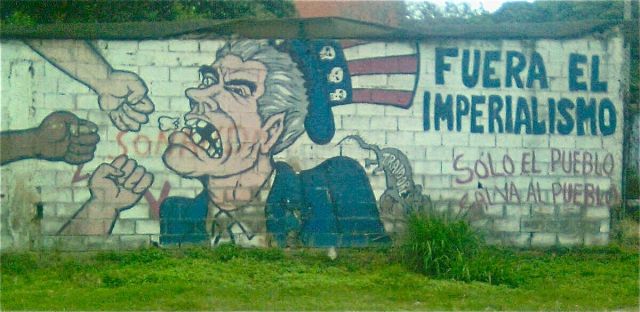
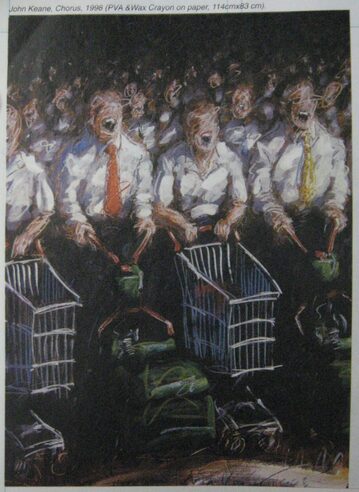
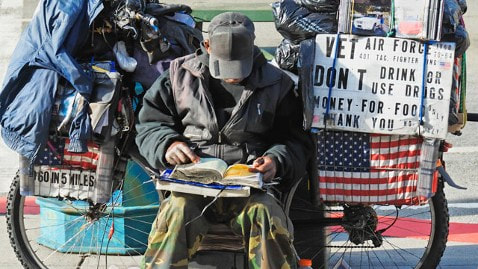

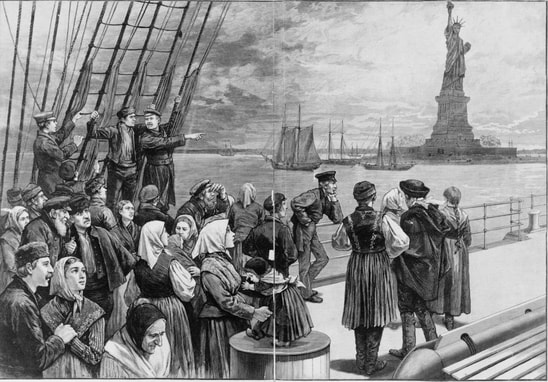
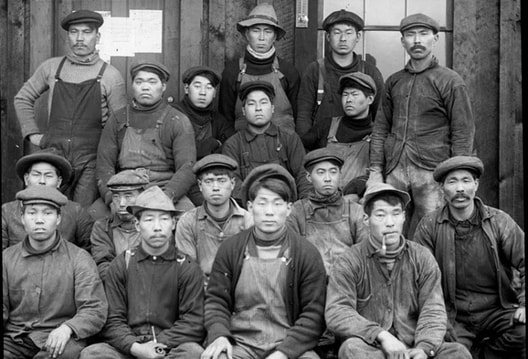
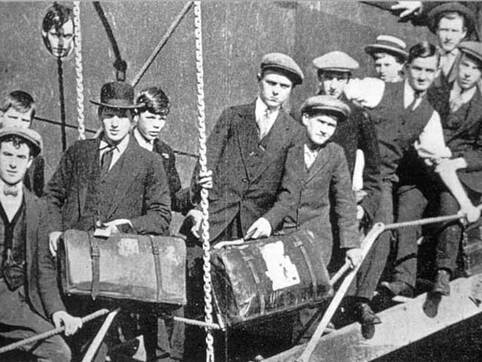
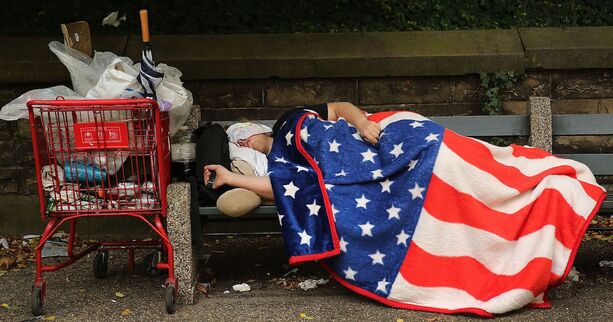
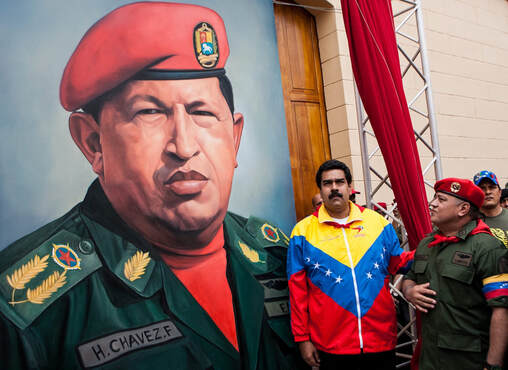
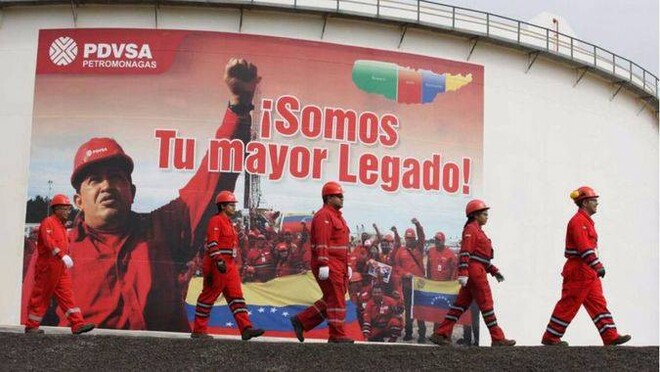
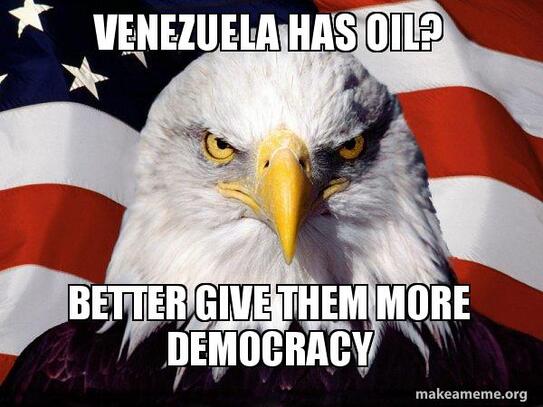
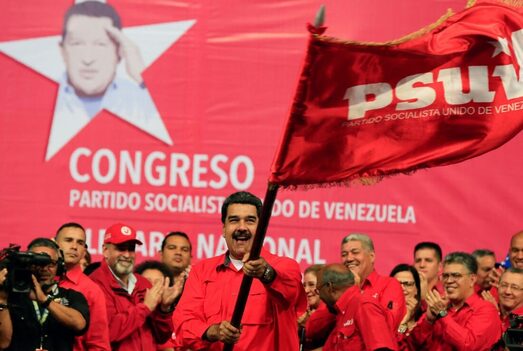
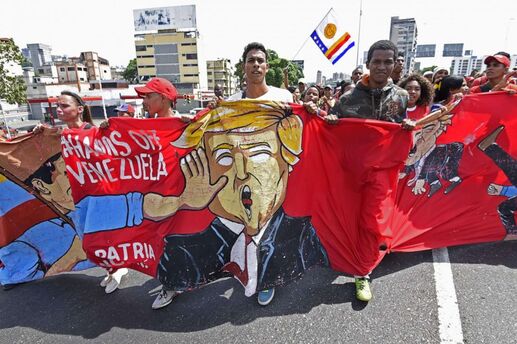
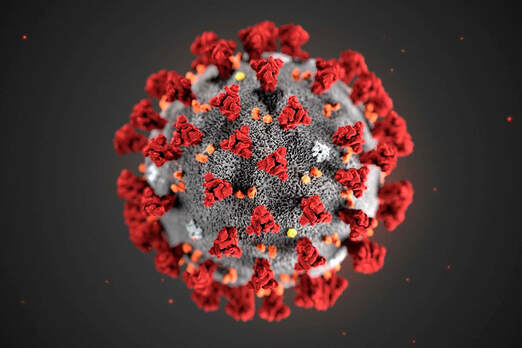
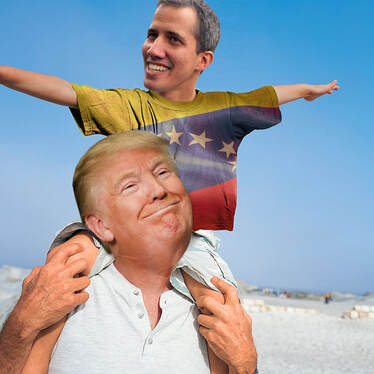
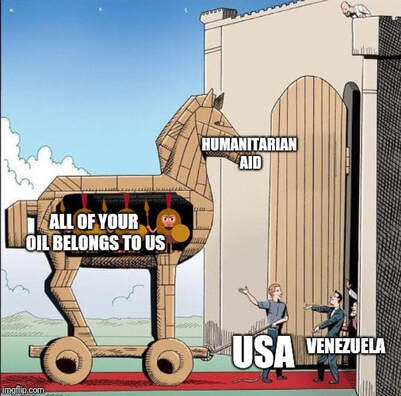
 RSS Feed
RSS Feed